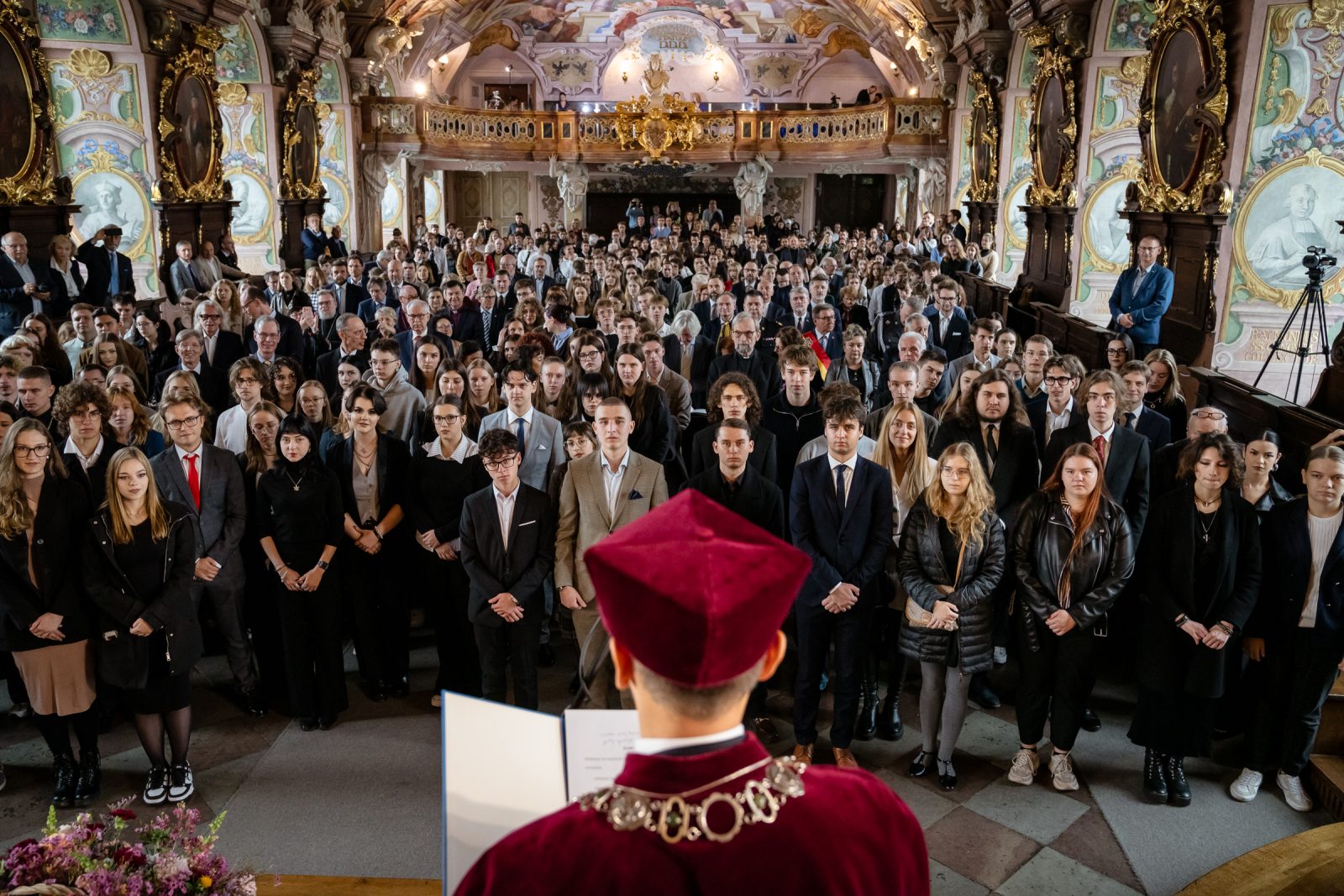
We have begun a new academic year!
On Wednesday, 1 October, the community of the University of Wrocław officially inaugurated the 2025/2026 academic year in the Aula Leopoldina.
The ceremony was attended by this year’s award recipients (the Heisig Prize and the Princess Jadwiga of Silesia Prize), friends of the University of Wrocław, including representatives of national, regional, municipal and local authorities, churches, diplomatic missions, academic institutions, public life, as well as partner organisations and enterprises, alongside University staff, students, and doctoral candidates who formally joined the University community. The gathered guests were welcomed by Katarzyna Górowicz-Maćkiewicz, the University’s press officer.
The Rector of the University of Wrocław, prof. Robert Olkiewicz, officially opened the new academic year 2025/2026 with his address.
The Rector recalled the history of the University and highlighted the celebration of its eightieth anniversary. He began by citing the words of Władysław II Jagiellon and recalling unsuccessful attempts to establish a university in 1505. He noted that it was only through the efforts of the Jesuits that the Austrian Emperor Leopold I issued the founding document in Vienna, known as the Golden Bull, which established the two-faculty Leopoldine University in 1702. The University officially commenced operations on 15 November.
− I mention this to emphasise the remarkable and challenging history of our University, a history worth learning about, exploring, and studying. All the more so as we celebrate the eightieth anniversary of the Polish University, which has not been easy either − the Rector remarked. He also spoke about the current structure of the University, its achievements, and future plans:
− In the most recent evaluation, the University of Wrocław assessed 25 disciplines, obtaining three A+ categories, eleven A categories, and eleven B+ categories. (…) At the University of Wrocław, we particularly value not only finalists and laureates of competitions but also those eager to develop their interests and become ‘Young Researchers.’ As a Research University, since 2020 we have received funding increased by 10 percent compared with 2019, enabling us to organise competitions for talented researchers and award scholarships. We have recipients of the Prime Minister’s and Minister of Science scholarships, as well as holders of numerous grants,” he added. He also stressed that the academic community is preparing for discussions about the future shape of Polish science and building mutual trust with the government.
Addressing those gathered in Aula Leopoldina, prof. Olkiewicz wished everyone professional and personal success in the new academic year.
Following the Rector’s speech, awards were presented.
The Heisig Prize was awarded for the third time. It was initiated and endowed by Professor Norbert Heisig—honorary senator and Doctor Honoris Causa of the University of Wrocław, founder and long-time president of the German-Polish Society of the University of Wrocław.
The Heisig Prize, awarded biennially at the University of Wrocław, was established by its benefactor in 2020 in the spirit of Polish-German understanding. Valued at PLN 200,000, the prize is awarded to an individual conducting research in Poland, recognising work distinguished by innovation in an area of significance for the contemporary world, acknowledged by the academic community, and culminating in a concrete achievement.
For the third edition of the Heisig Prize, the University Senate-appointed committee nominated two candidates: prof. Paweł Kulesza from the University of Warsaw, representing the chemical sciences, electrochemistry, inorganic and analytical chemistry, and materials engineering, recognised for his discovery and comprehensive description of charge propagation in functional materials with broad application potential in energy conversion and storage; and prof. Adam Miranowicz from Adam Mickiewicz University in Poznań, representing the physical sciences, quantum optics, quantum information theory and cryptography, recognised for pioneering research on theoretical and empirical foundations of quantum technologies, including new methods of generating, controlling, and detecting single-photon quantum states and the fundamental discovery of ultra-strong light-matter coupling and its applications to dissipative quantum engineering.
From the nominees, the Heisig Prize was awarded to prof. Adam Miranowicz.
Next, the Princess Jadwiga of Silesia Prize was presented. Established in 2004, this annual prize is funded by the Mayor of Wrocław, the Rector of the University of Wrocław, and the Silesian Salon. It was inspired by a commitment to nurturing fundamental values that transcend differences and divisions, particularly respect for human rights, the pursuit of peace, honesty, friendship, and the European community of values, vital to all nations. The prize is awarded to individuals or institutions that have made a significant contribution to reconciliation and the deepening of Polish-German cooperation, or have distinguished themselves through outstanding charitable activity.
This year, the prize was awarded to Reverend Dr Manfred Deselaers for his longstanding commitment to fostering Polish-German dialogue and reconciliation, particularly regarding the memory of Auschwitz, as well as for his work with the Dortmund-Wrocław-Lviv St Hedwig Foundation, promoting cross-border cooperation, supporting social and educational initiatives, and preserving Silesian cultural heritage.
Reverend Dr Deselaers emphasised his deep admiration for the spirit of reconciliation he experienced in Wrocław: − I do not deserve this prize; the city of Wrocław does, and I propose that next year the award be given to Wrocław itself − he said.
Ksiemierz Pabisiak, representing the Dortmund-Wrocław-Lviv St Hedwig Foundation, accepted the award on behalf of the Foundation, thanking those who strive to build bridges between nations and noting that the Foundation is currently assisting people in Ukraine. − We thank the Committee for awarding this prize. It is also a prize for the people of Wrocław − he concluded.
Additionally, the Committee decided to award a Special Prize to His Eminence Cardinal Konrad Krajewski in recognition of his outstanding charitable work, providing assistance to the most vulnerable, and his commitment to building a community grounded in mercy and solidarity.
Following the awards, the matriculation ceremony for newly admitted students was conducted by dr Łukasz Prus, Vice-Rector for Student Affairs. − By taking the oath, you have gained the rights and responsibilities of students. Congratulations to you all!
It is worth noting that in this year’s recruitment to the University of Wrocław, 8,762 students were admitted to full-time and part-time first- and second-cycle studies in Polish, and 620 students were admitted to programmes taught in English.
New doctoral candidates were also formally admitted, with prof. Artur Błażejewski, Vice-Rector for Research, overseeing the ceremony. − Since you have chosen to pursue the search for truth, you will see that it is not easy, but it is worthwhile − he said. After the oath, he congratulated the newly admitted doctoral students. − From this moment, we are already colleagues − he added.
This year, 116 doctoral candidates were admitted to the Doctoral School of the University of Wrocław.
Arkadiusz Smugowski, Chair of the University Student Self-Government, also addressed the audience.
The inaugural lecture, entitled “Doświadczenia uniwersyteckie pisarza a differentia specifica literatury kryminalnej. Kilka uwag autobiograficznych”, was delivered by dr Marek Krajewski, a Polish writer and classical philologist, expert in Latin linguistics, Doctor of Humanities, former lecturer at the University of Wrocław, author of acclaimed crime novels, and recipient of the Polityka Passport award.
Marek Krajewski opened his brilliant lecture with a Latin greeting to the entire academic community: − This language has resonated here in Aula Leopoldina for centuries. The inscriptions on the walls symbolise the inseparable connection between the university tradition and Latin, which can still be studied today in the classical philology programme at my Alma Mater.
He then moved to a discussion that was simultaneously criminal, academic, and personal, recounting a gloomy evening in 1990 and a seminar on classical philology with his mentor, prof. Herbert Myśliwiec. − I do this to show, through my own experience, how a classical university education shaped the author of detective novels − he explained. He recalled how journalists had, a quarter of a century ago, asked him about the link between his education and the literary genre he pursues, to which he always replied that it was profound and inseparable, as a classical philologist is a “textual detective.” He described a 1990 seminar in which prof. Myśliwiec explained the problem of the child in Virgil’s Fourth Eclogue.
Using this example, Krajewski demonstrated the artistry of classical philologists as “textual detectives,” concluding: − I do not overestimate my literary work, and I doubt that my grandchildren’s generation will read my novels, but I am certain of one thing: I would not have written these popular books without the entire tradition of our magnificent Alma Mater, without the references in this building to Jan Kazimierz University in Lviv and the German traditions of our University. Without all of this, I would not be who I am: a modest author of crime novels attempting to reconstruct the lost worlds of Polish Lviv and German Wrocław, an author shaped by the most venerable and oldest academic discipline, classical philology. His lecture was met with enthusiastic applause.
The ceremony concluded with a communal singing of the academic song Gaudeamus igitur.
The inauguration was further marked by a performance from the UWr Gaudium Choir.
Following the ceremony, a tree was planted—the first of eighty trees that the University of Wrocław will plant in celebration of its eightieth anniversary.
On 1 October, an exhibition was also opened to mark the University’s eightieth anniversary, organised by the University Museum in collaboration with faculty representatives and the University Archive. The exhibition focuses on the post-war history of the University of Wrocław and will be on display from 1 to 24 October along the northern frontage of Wrocław Market Square.
The photo report was prepared by Paweł Piotrowski. A recording of the ceremony is also available for viewing.
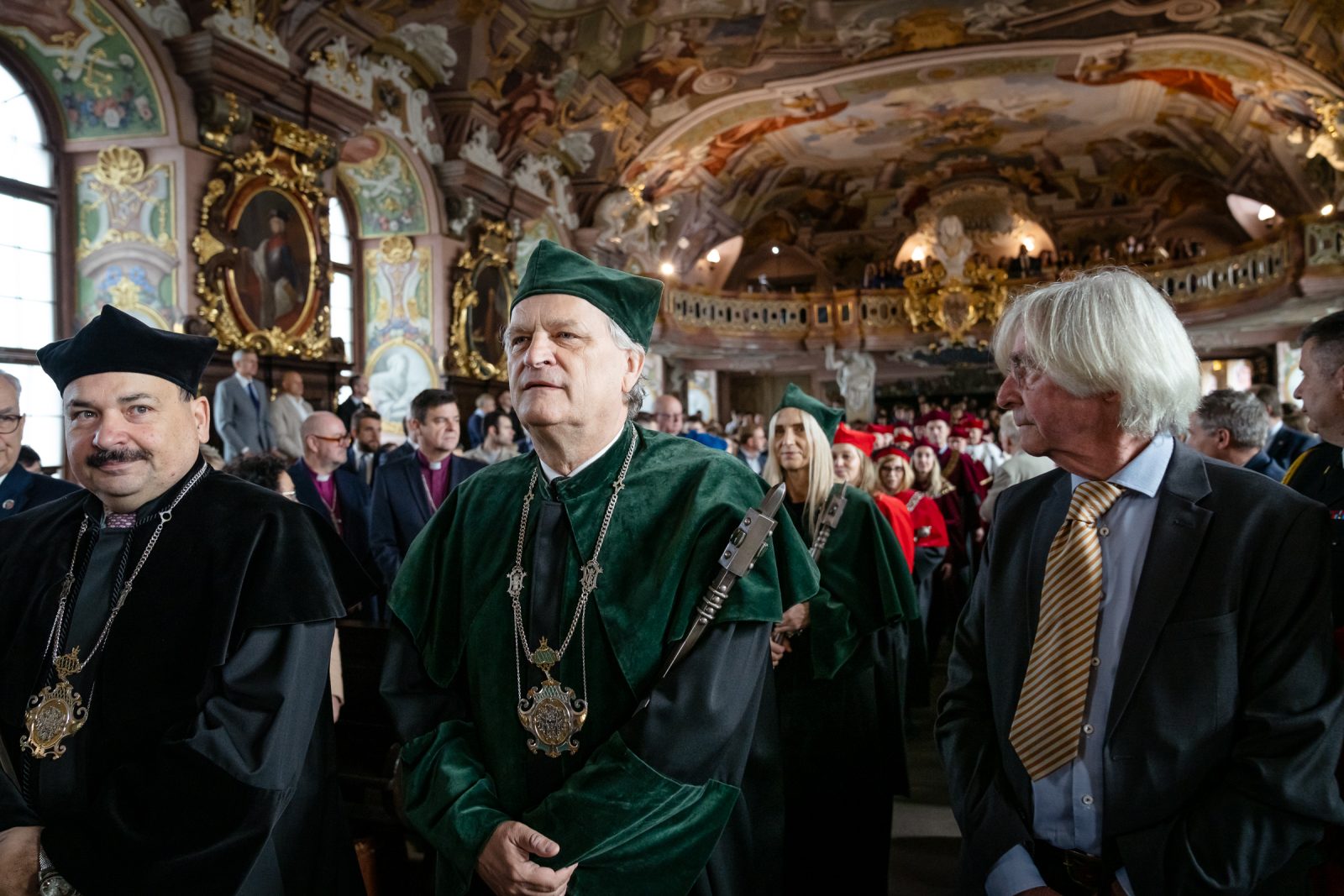
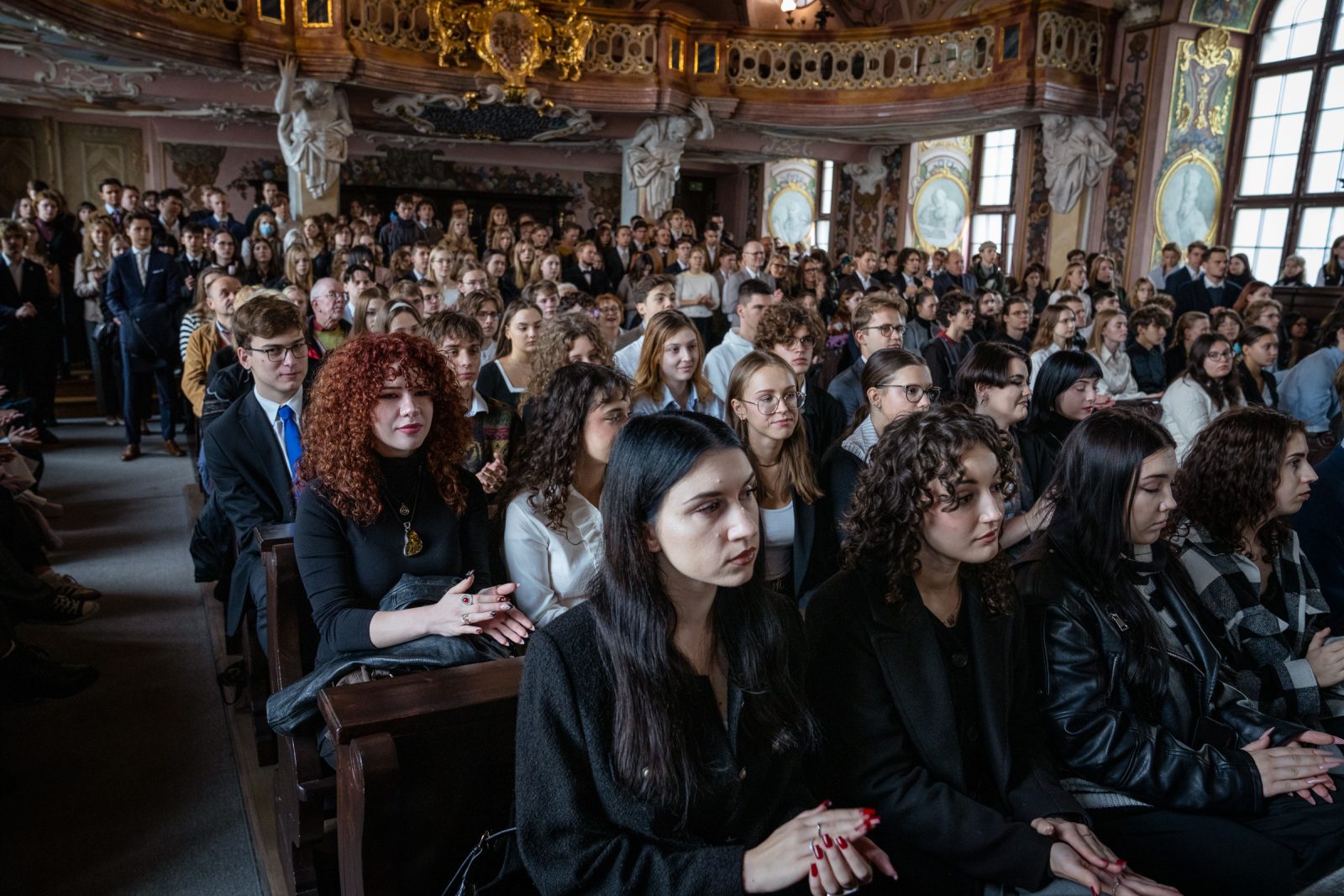
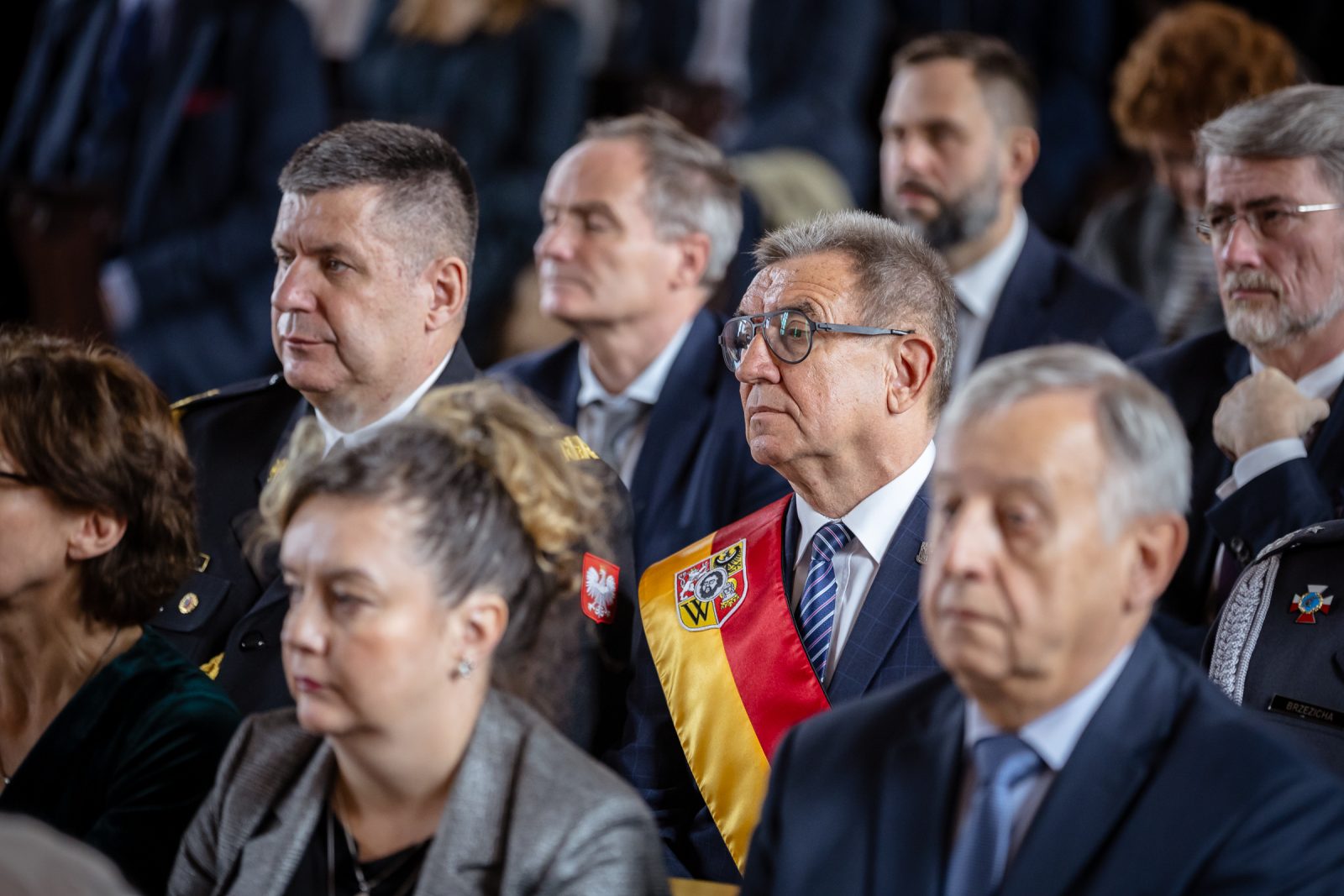
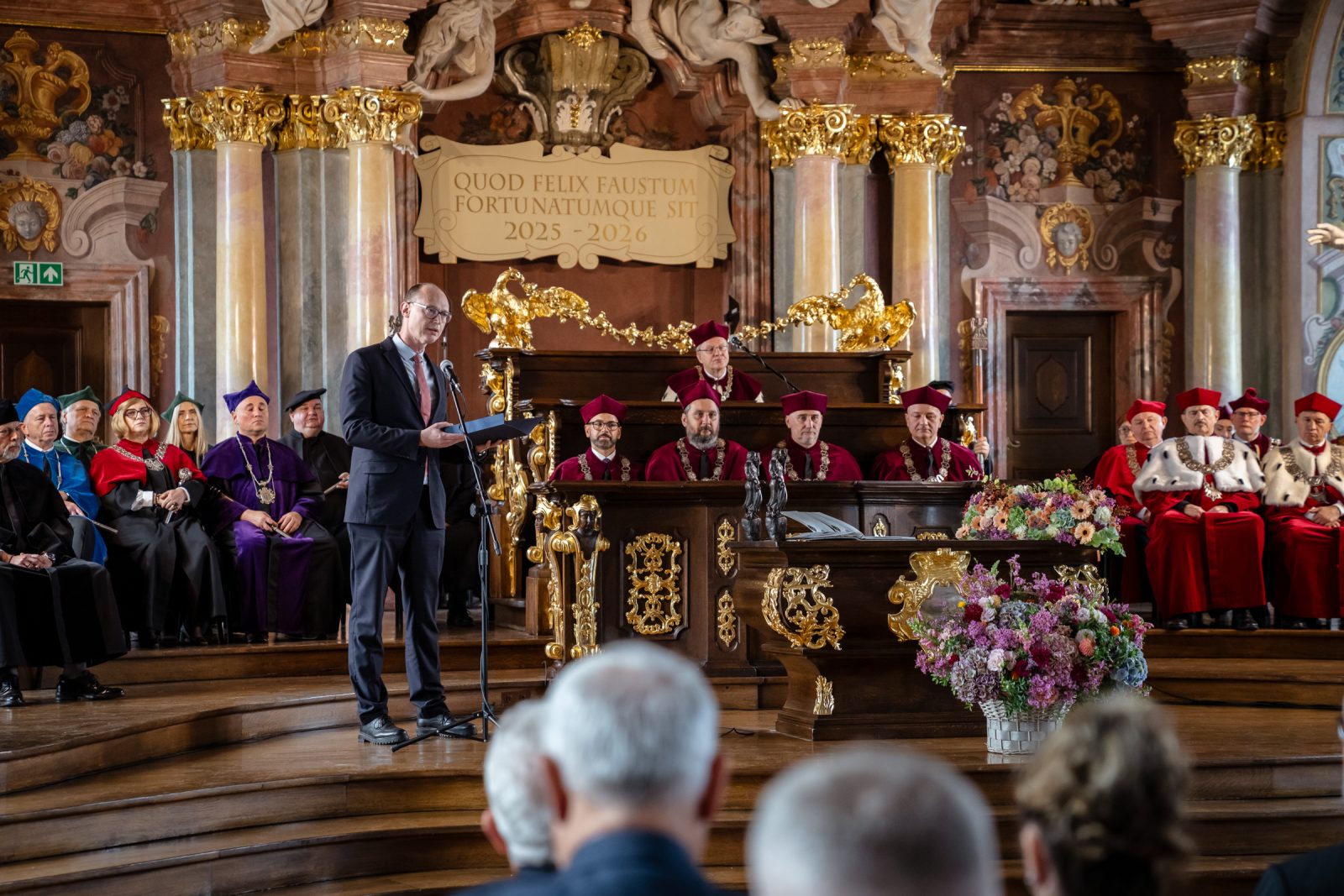
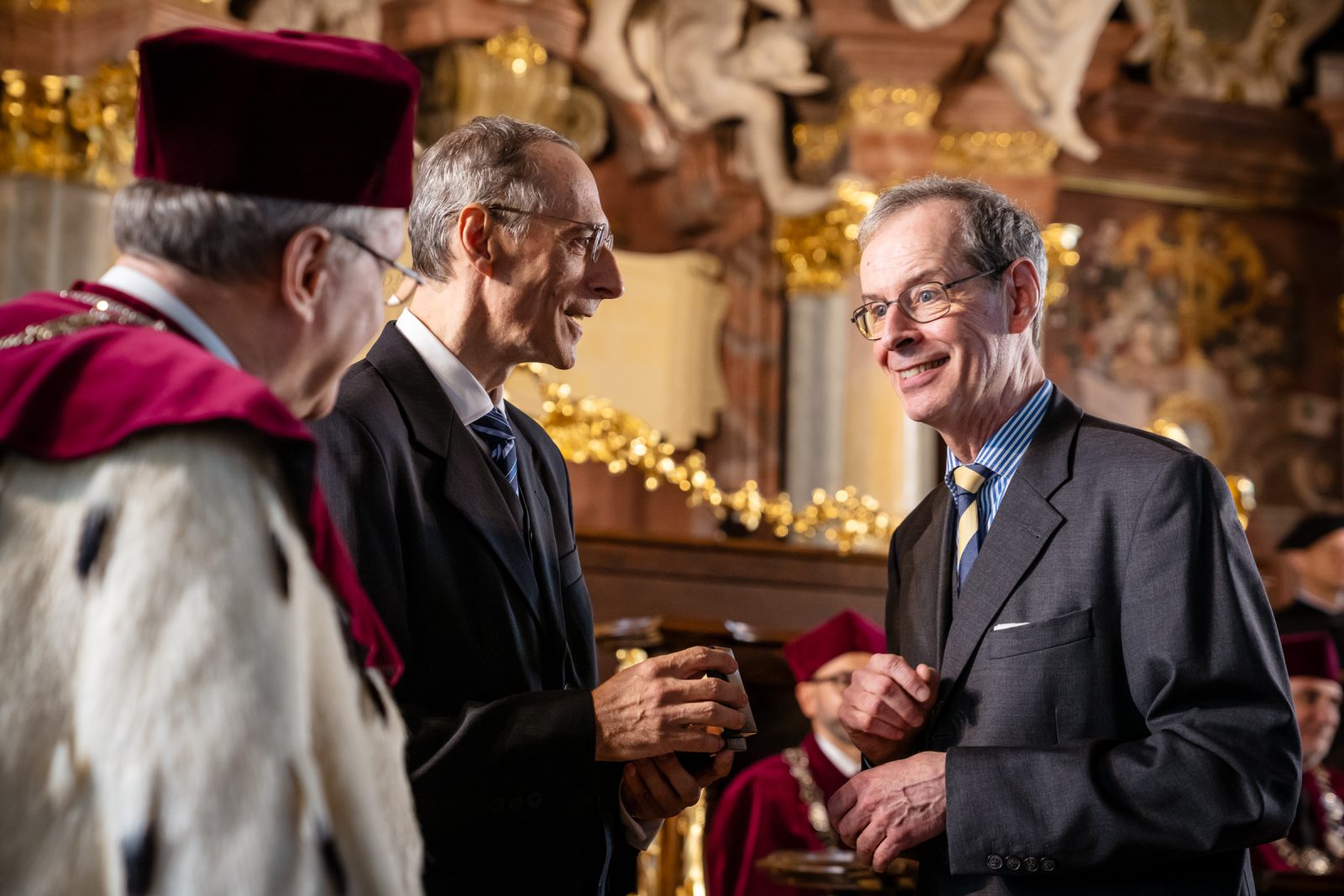
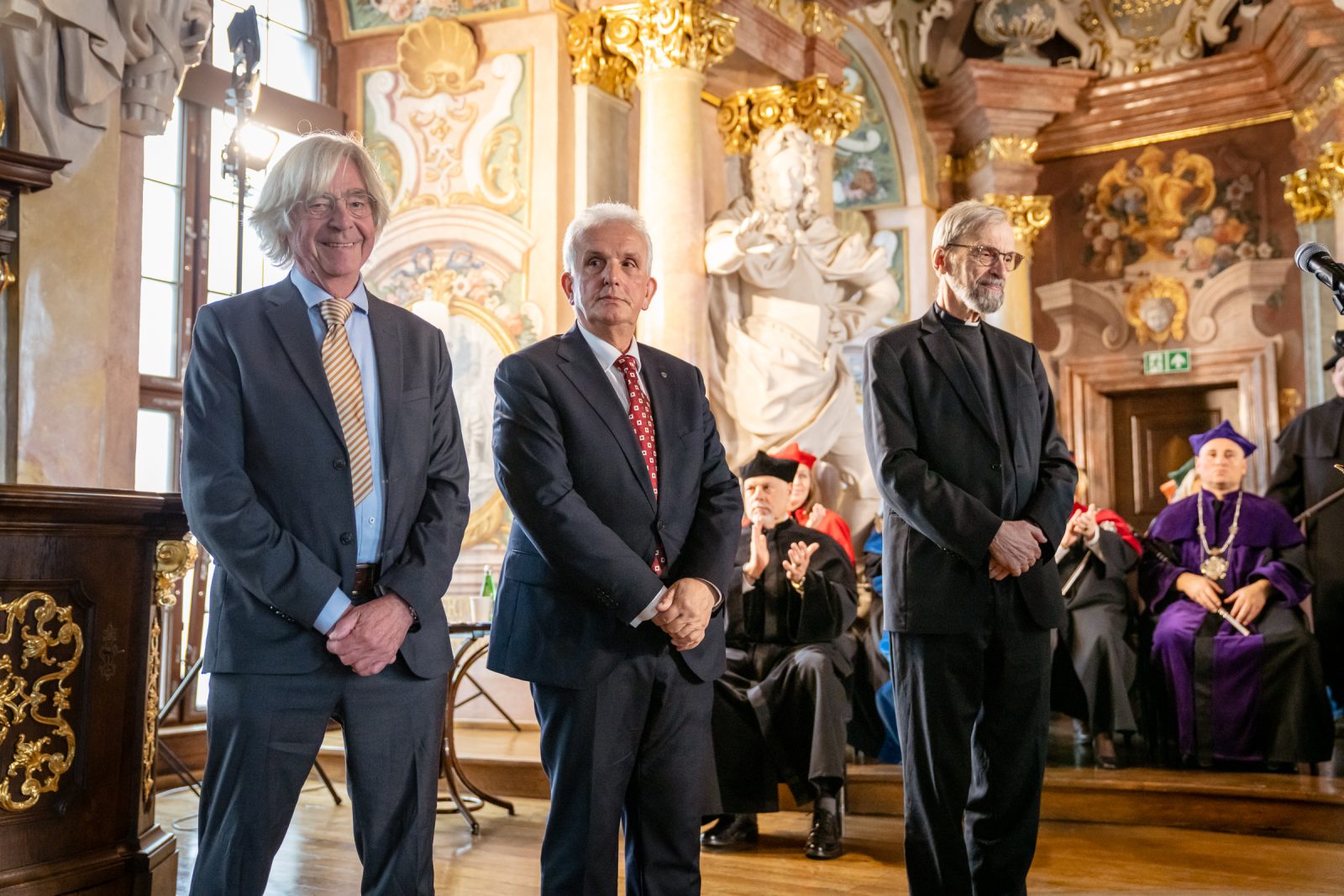
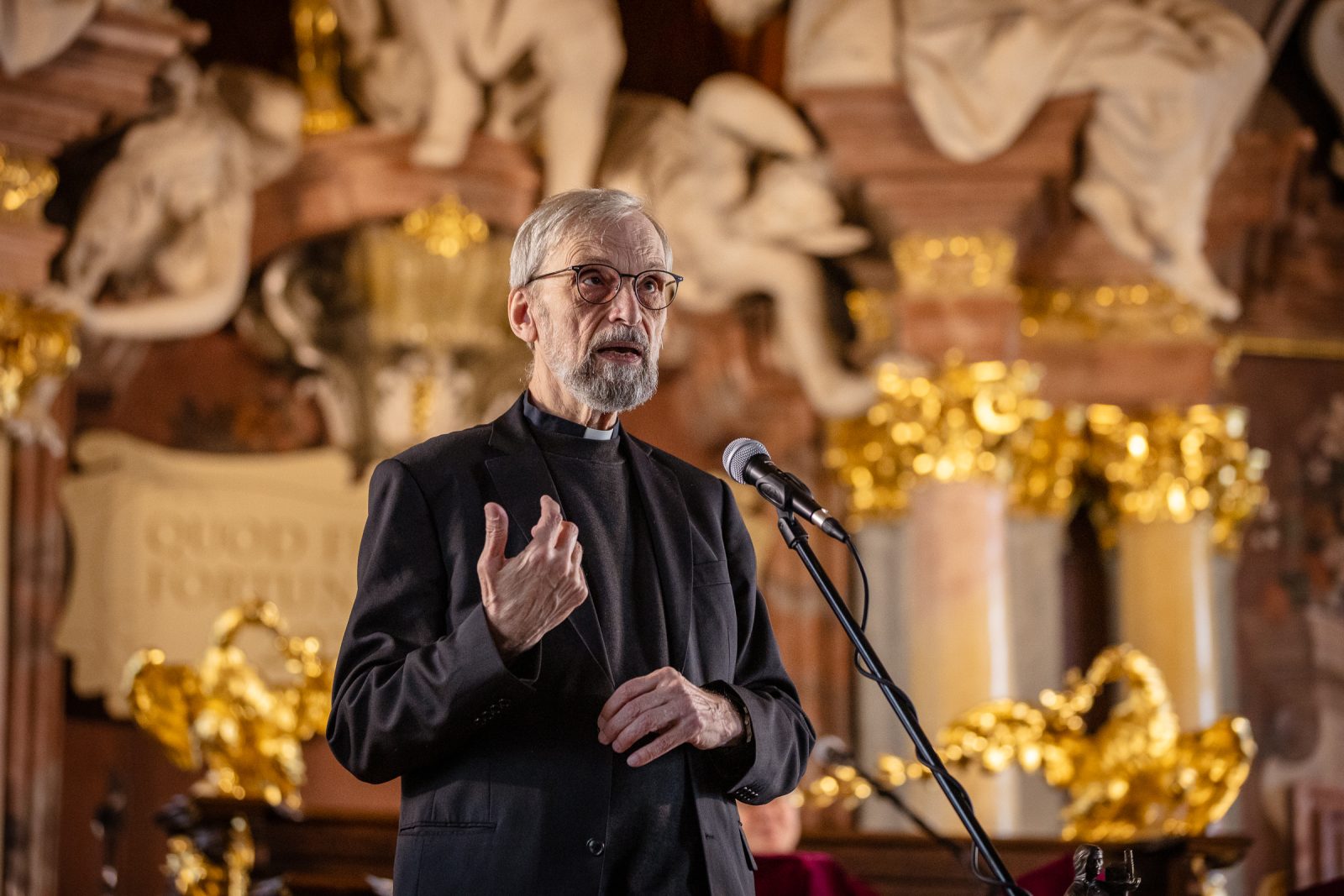
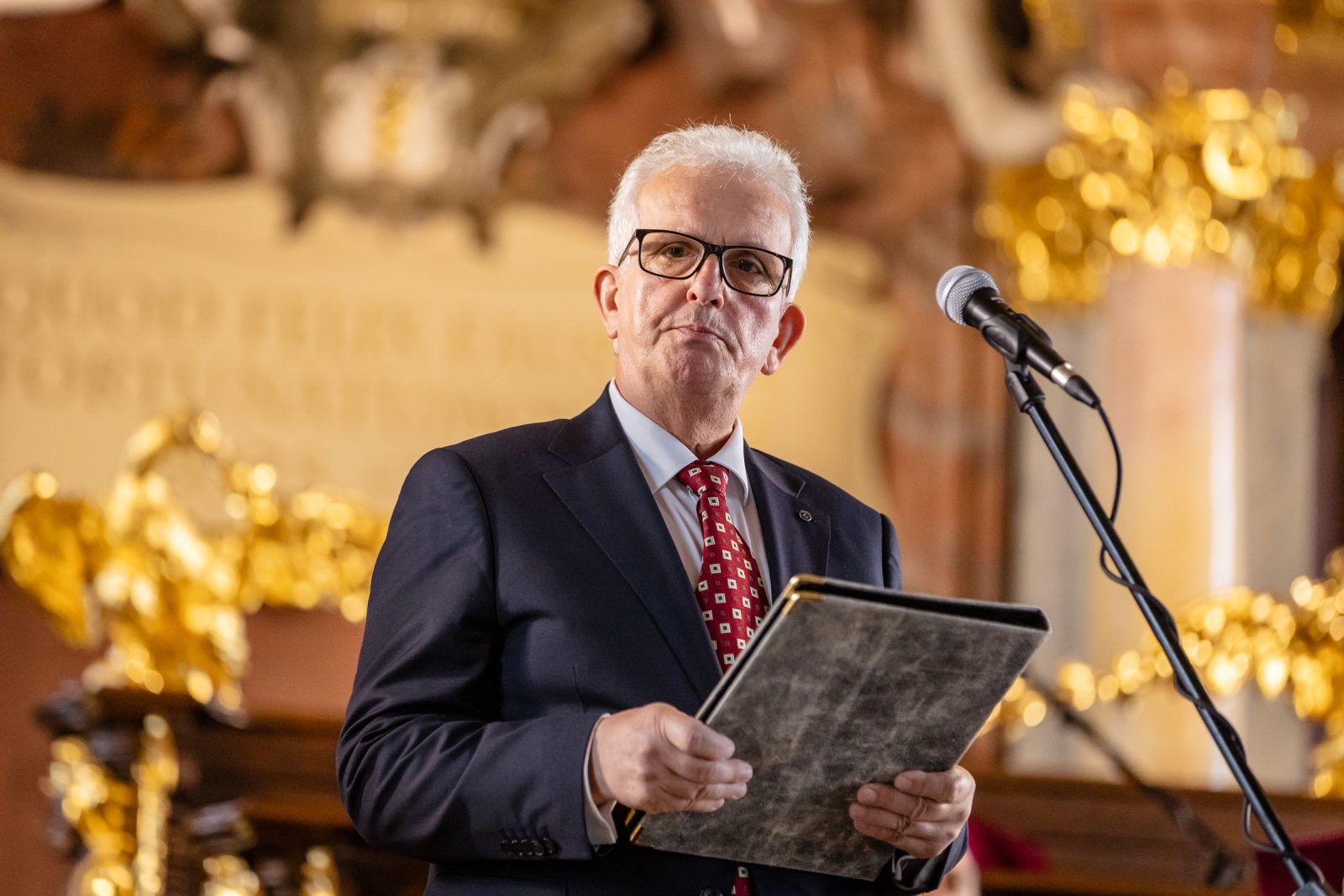
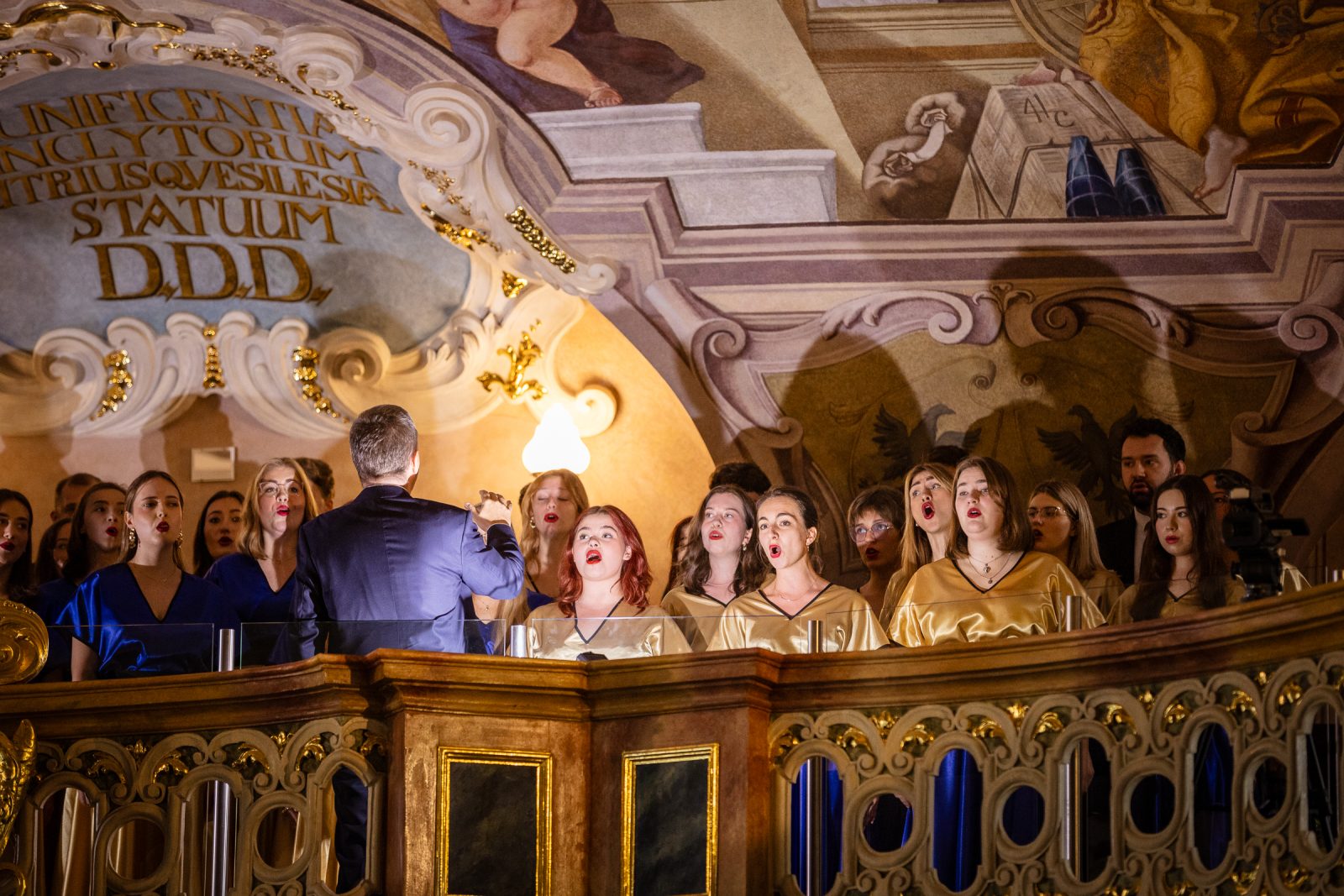
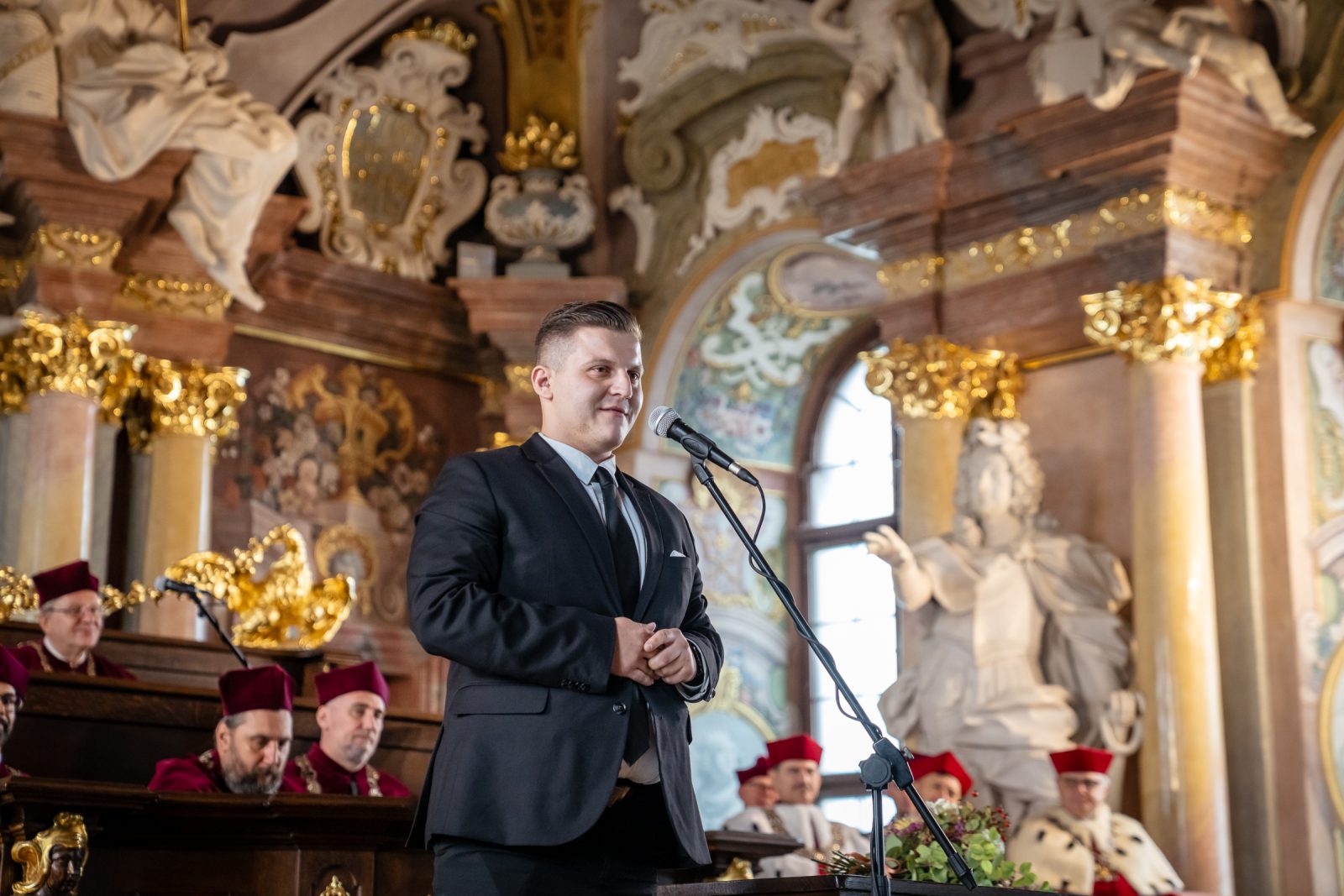
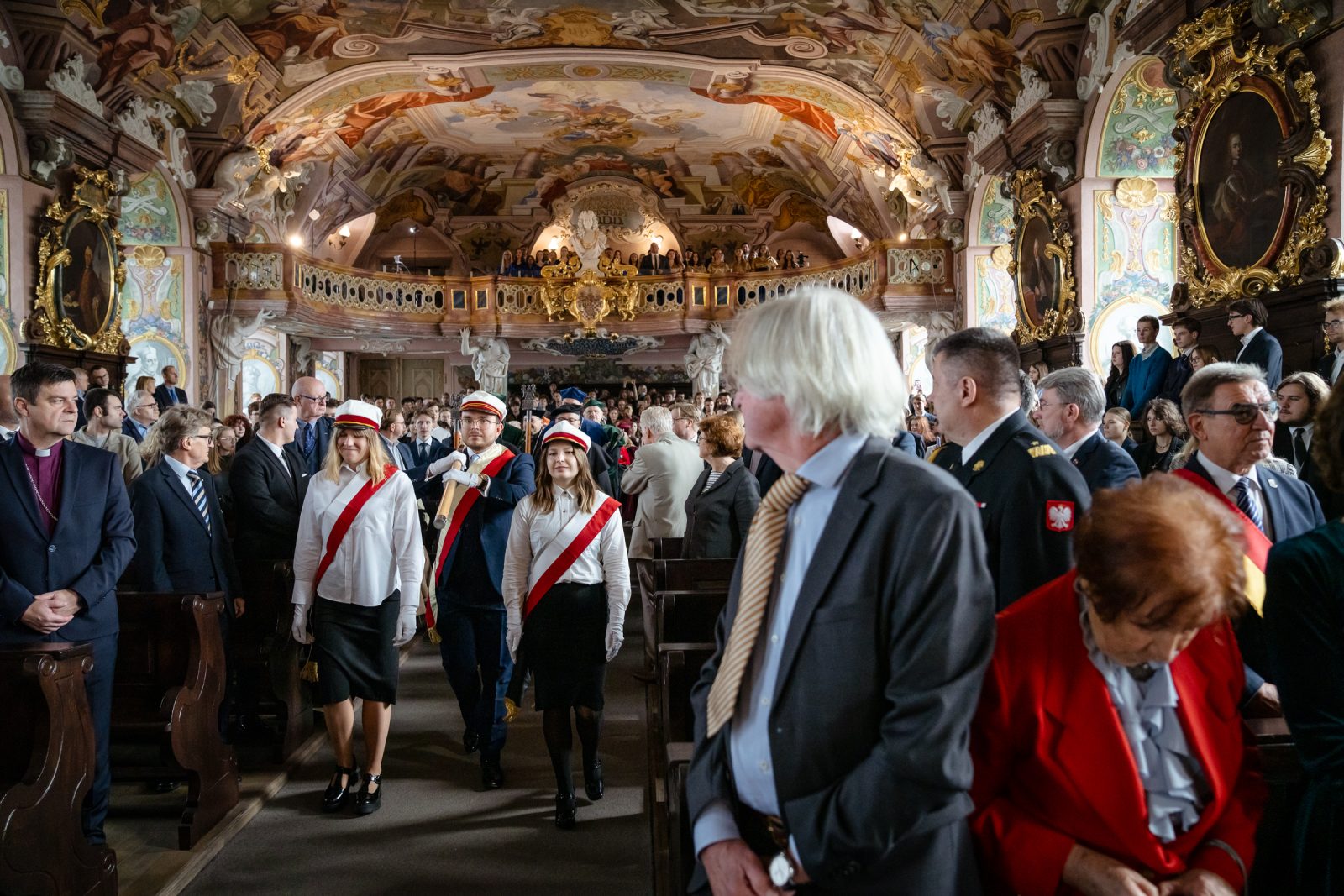
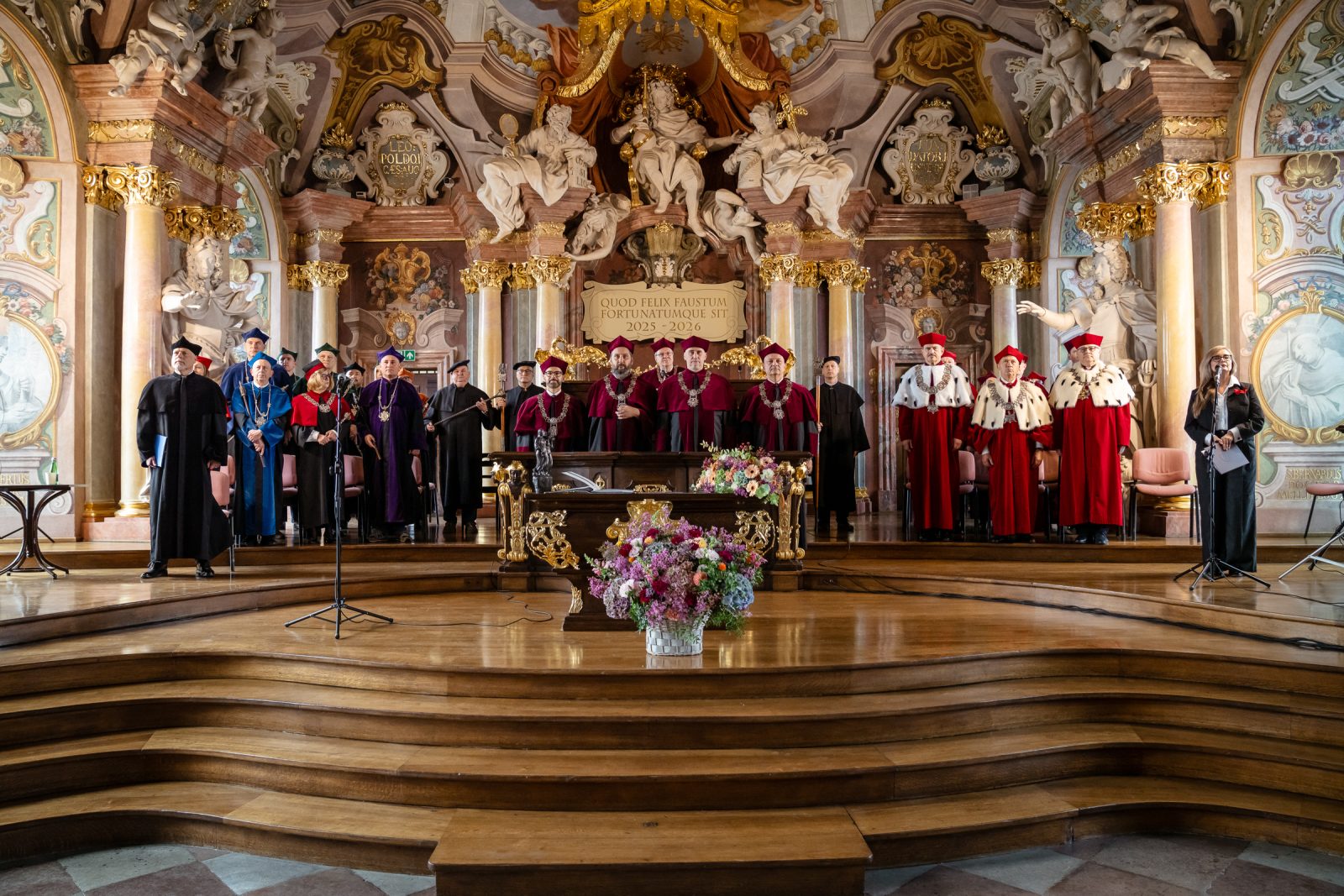
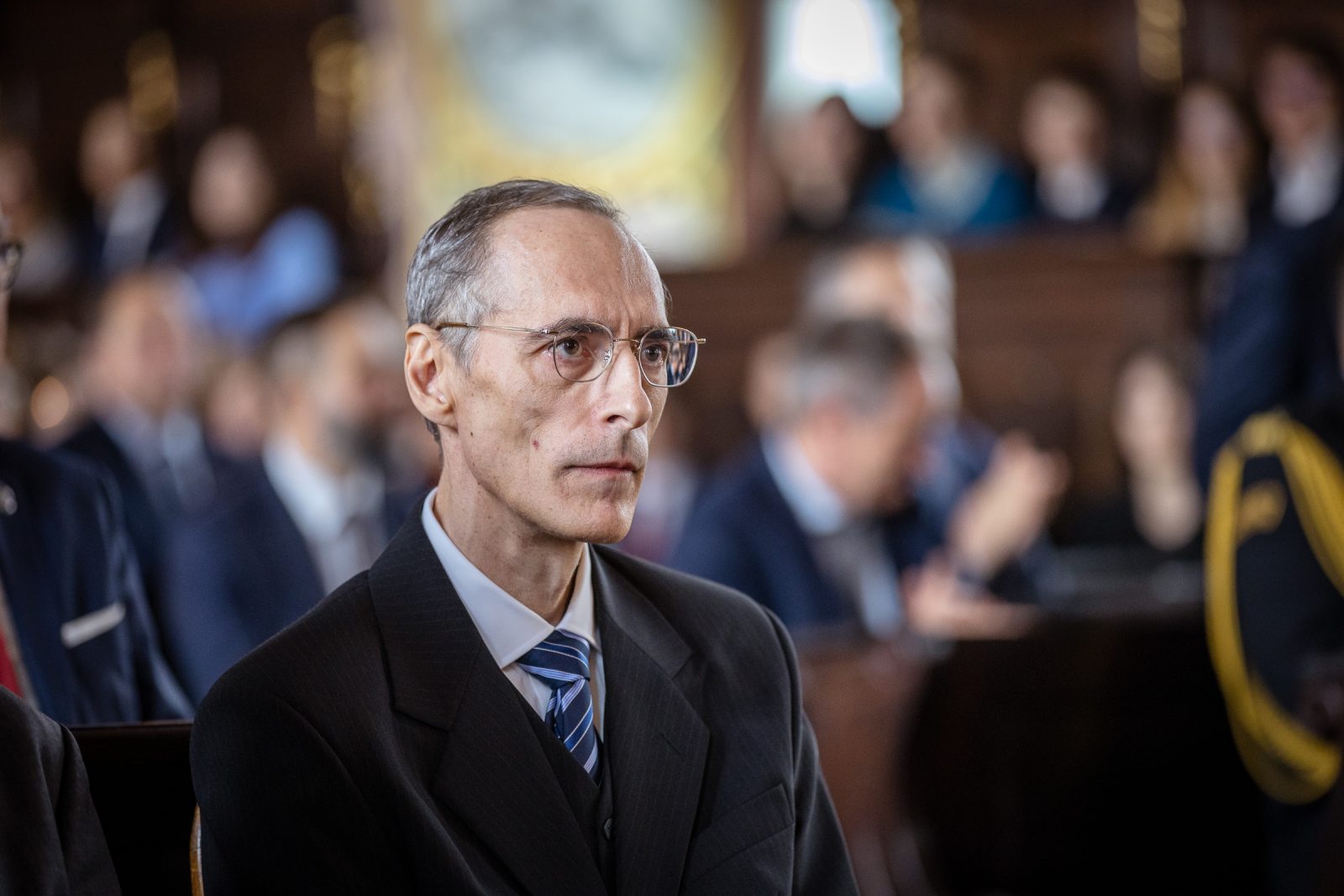
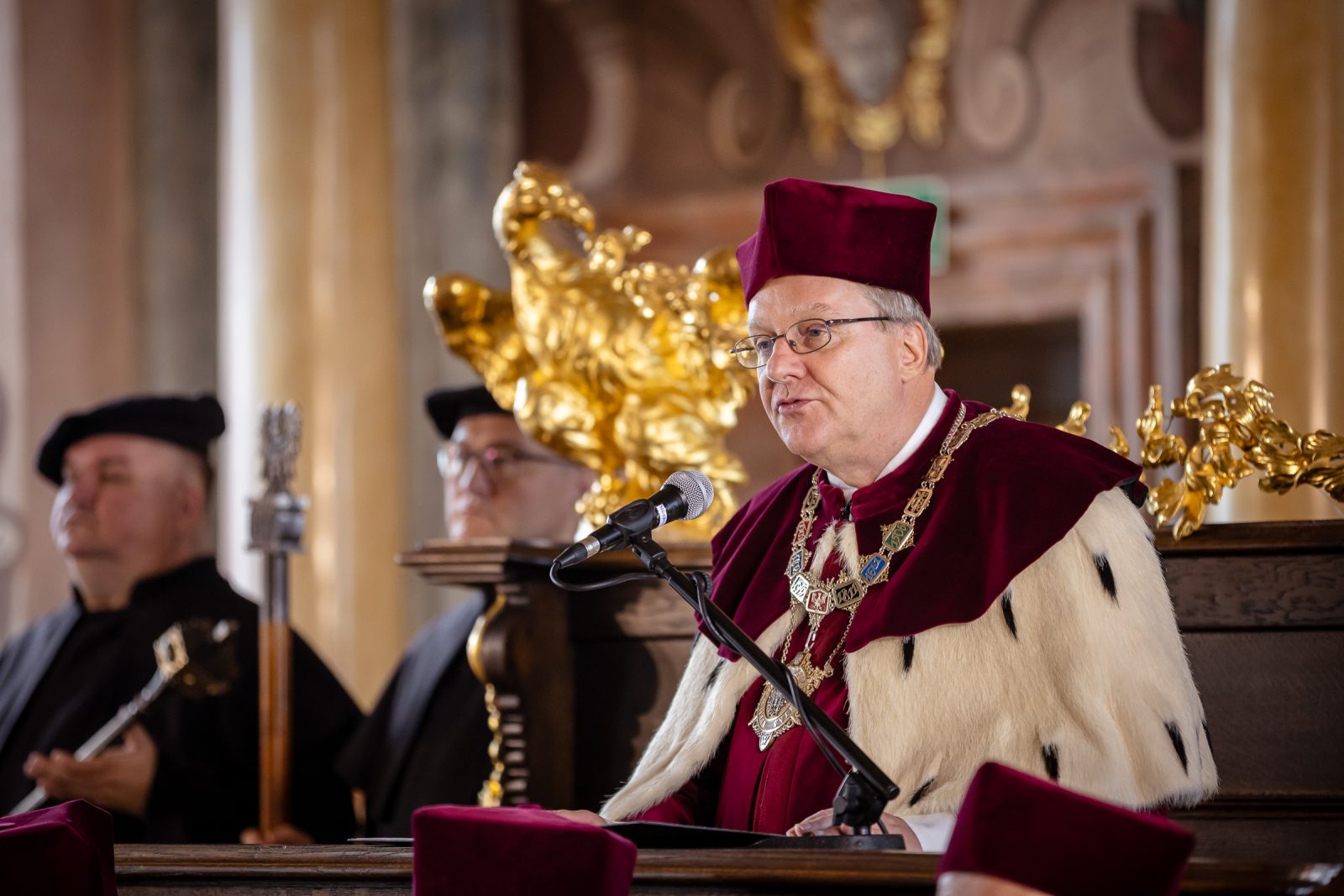
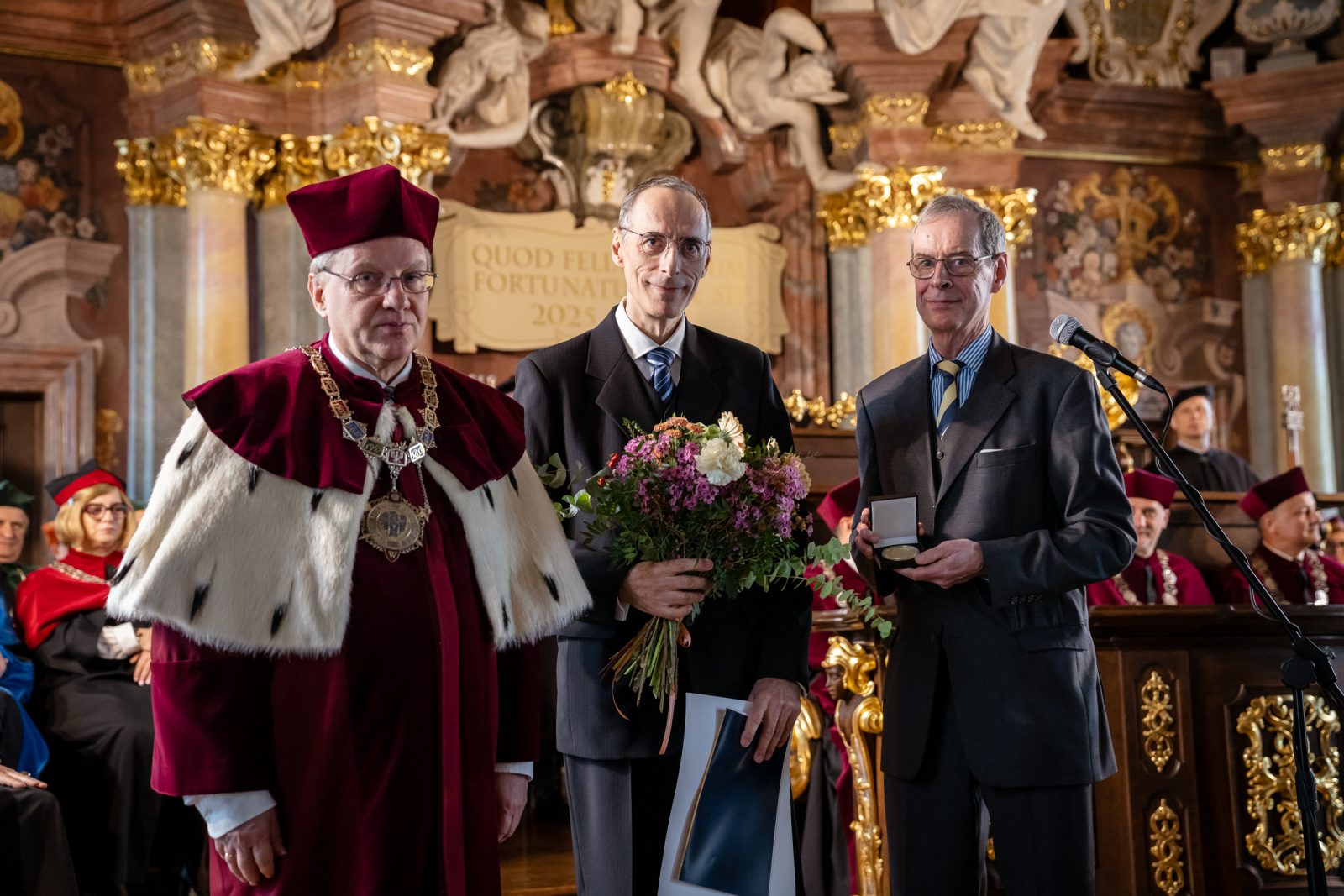
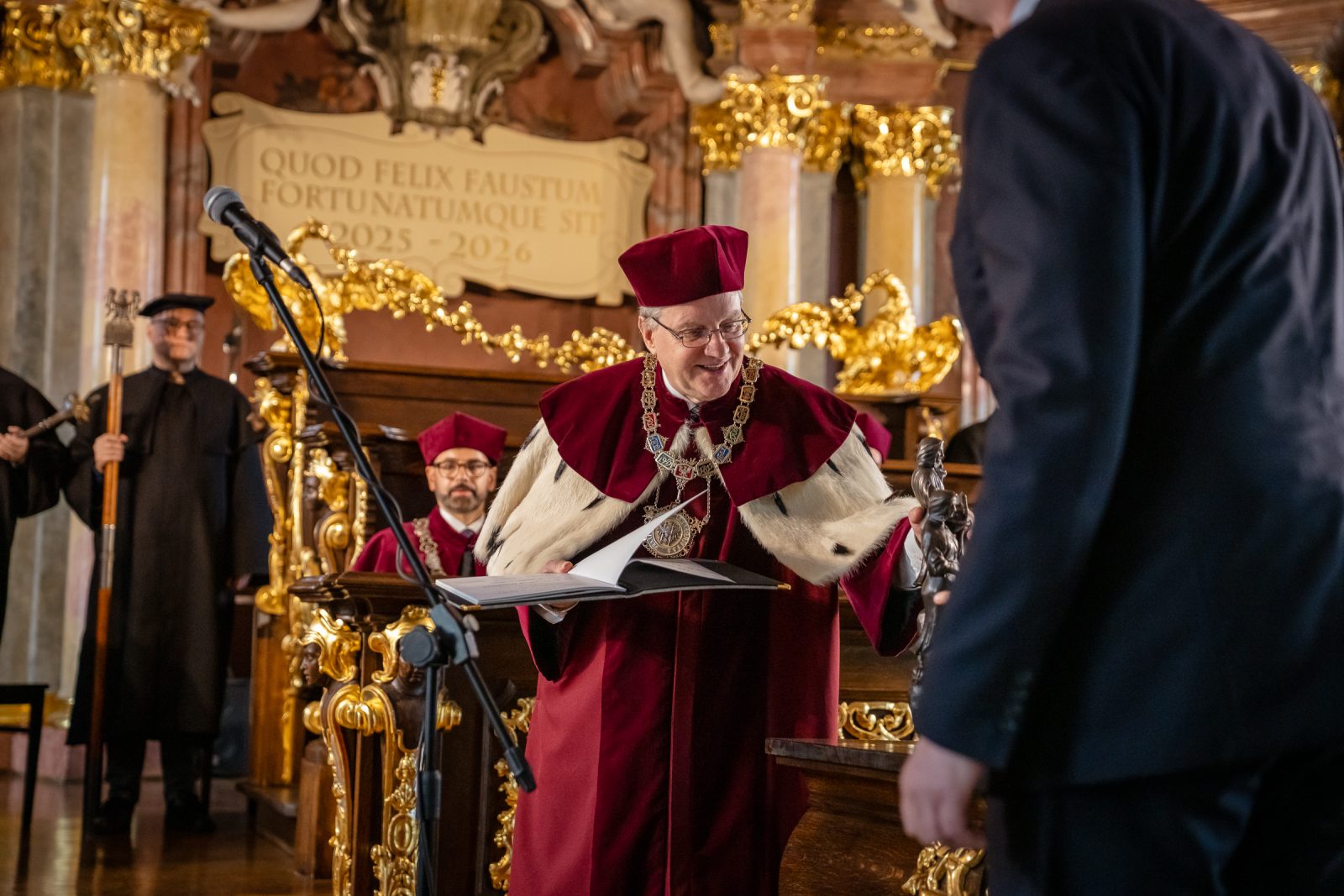
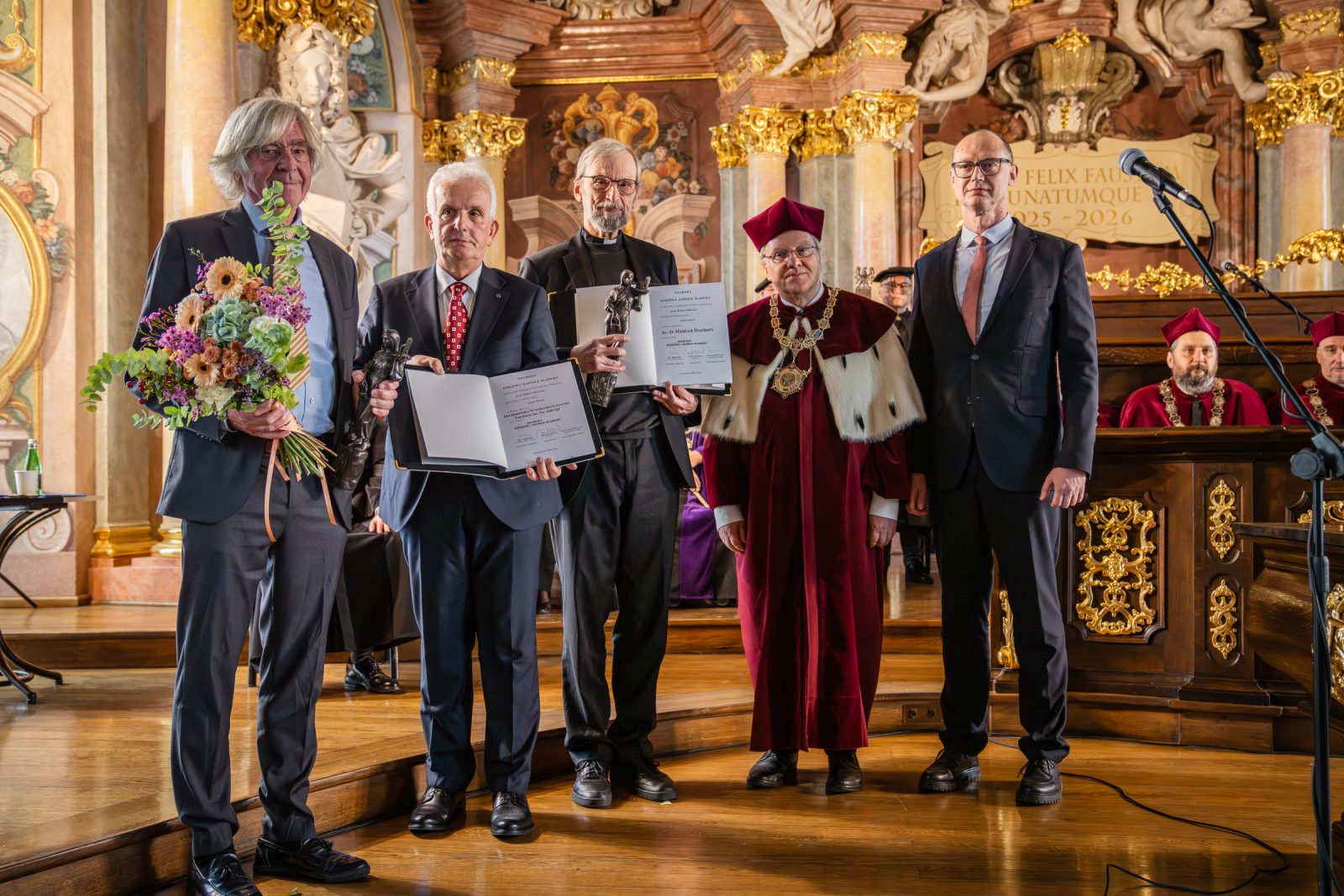
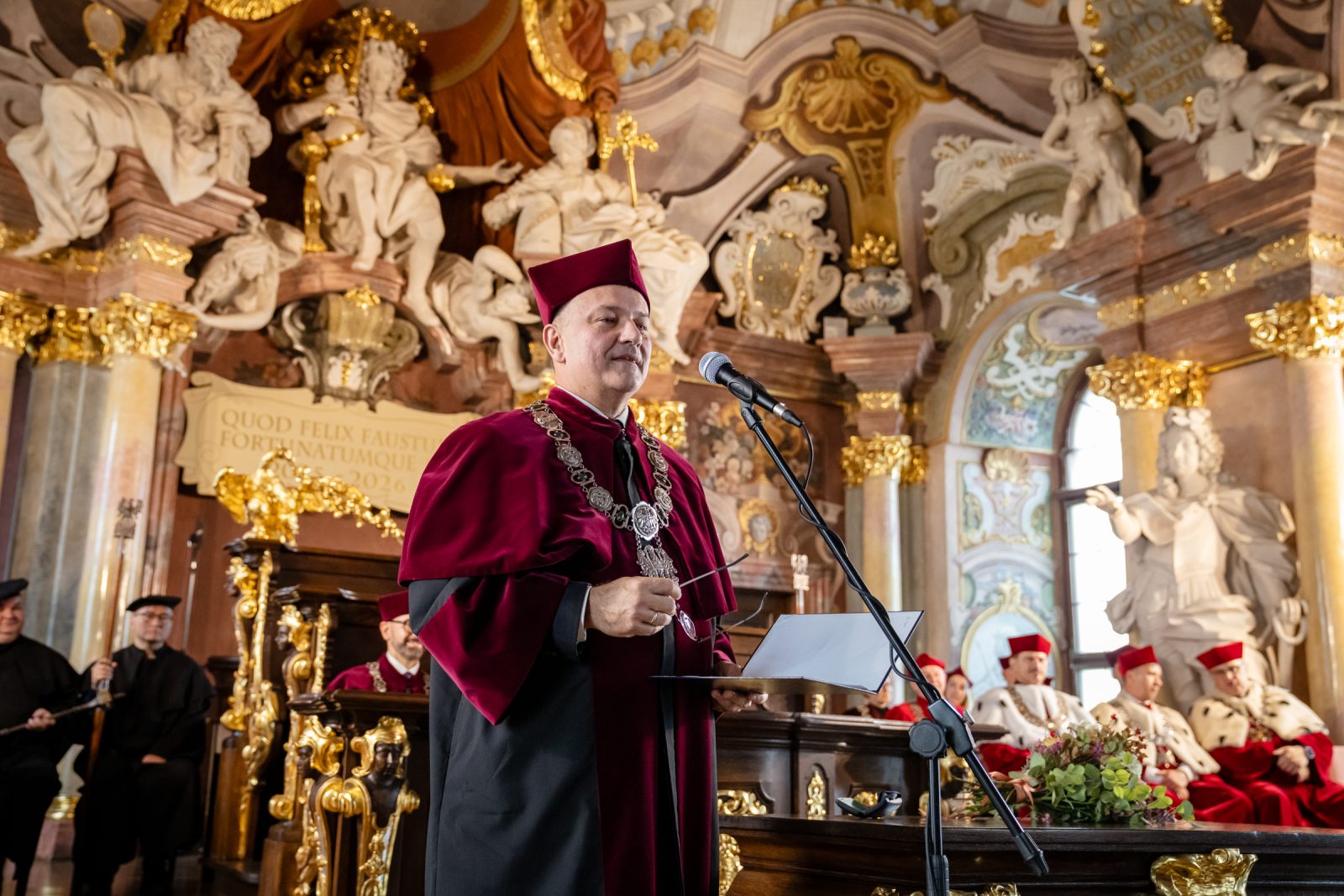
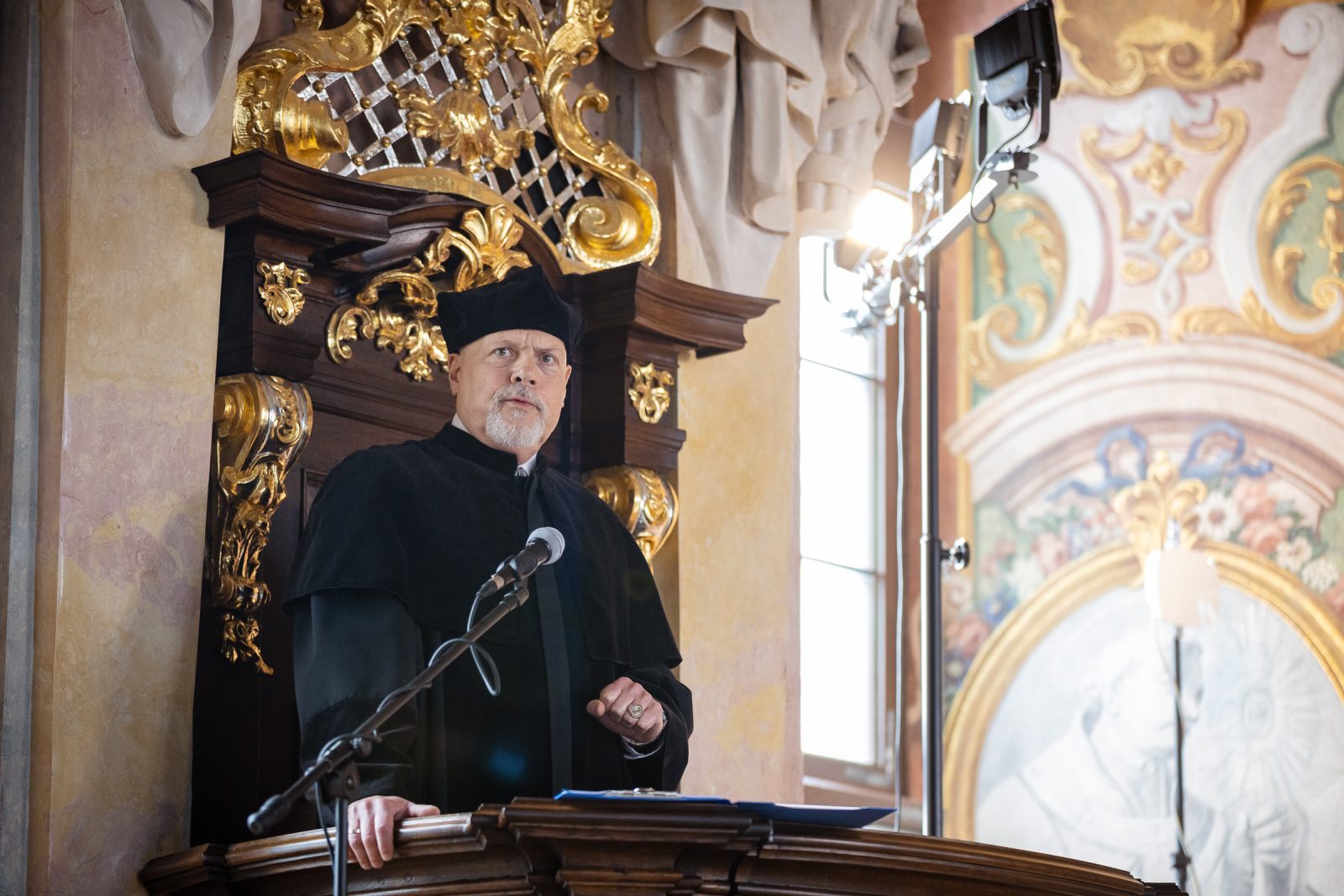
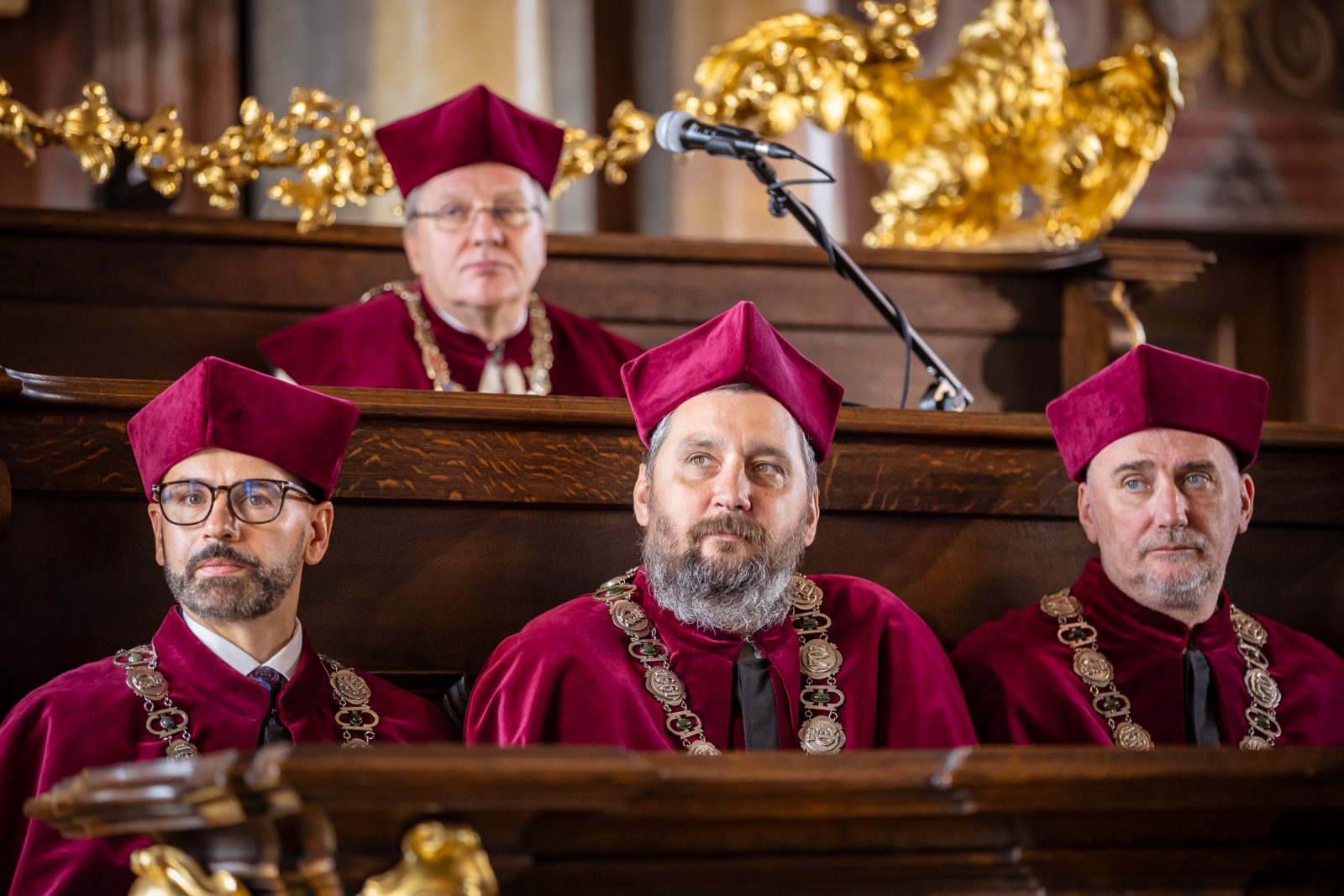
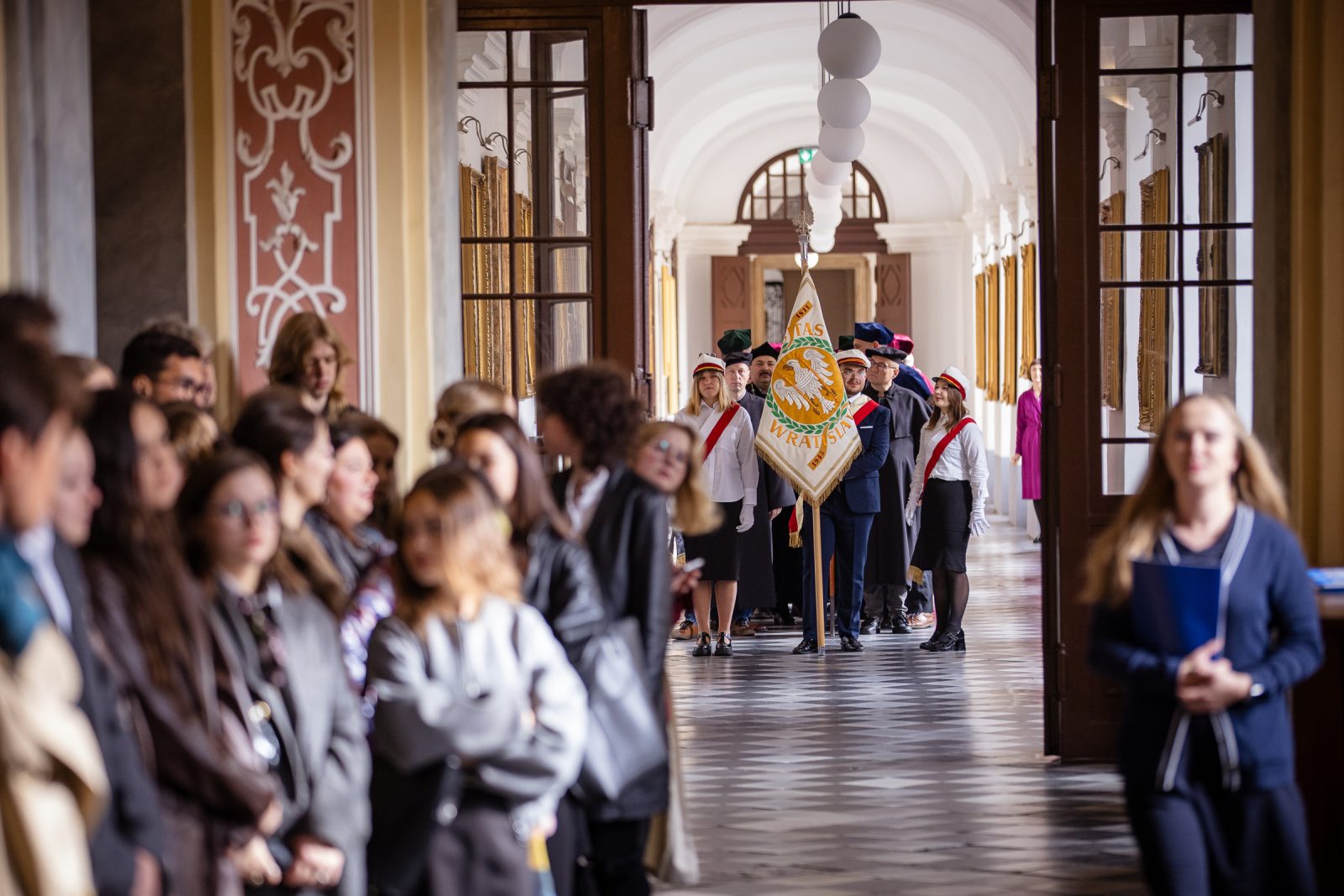
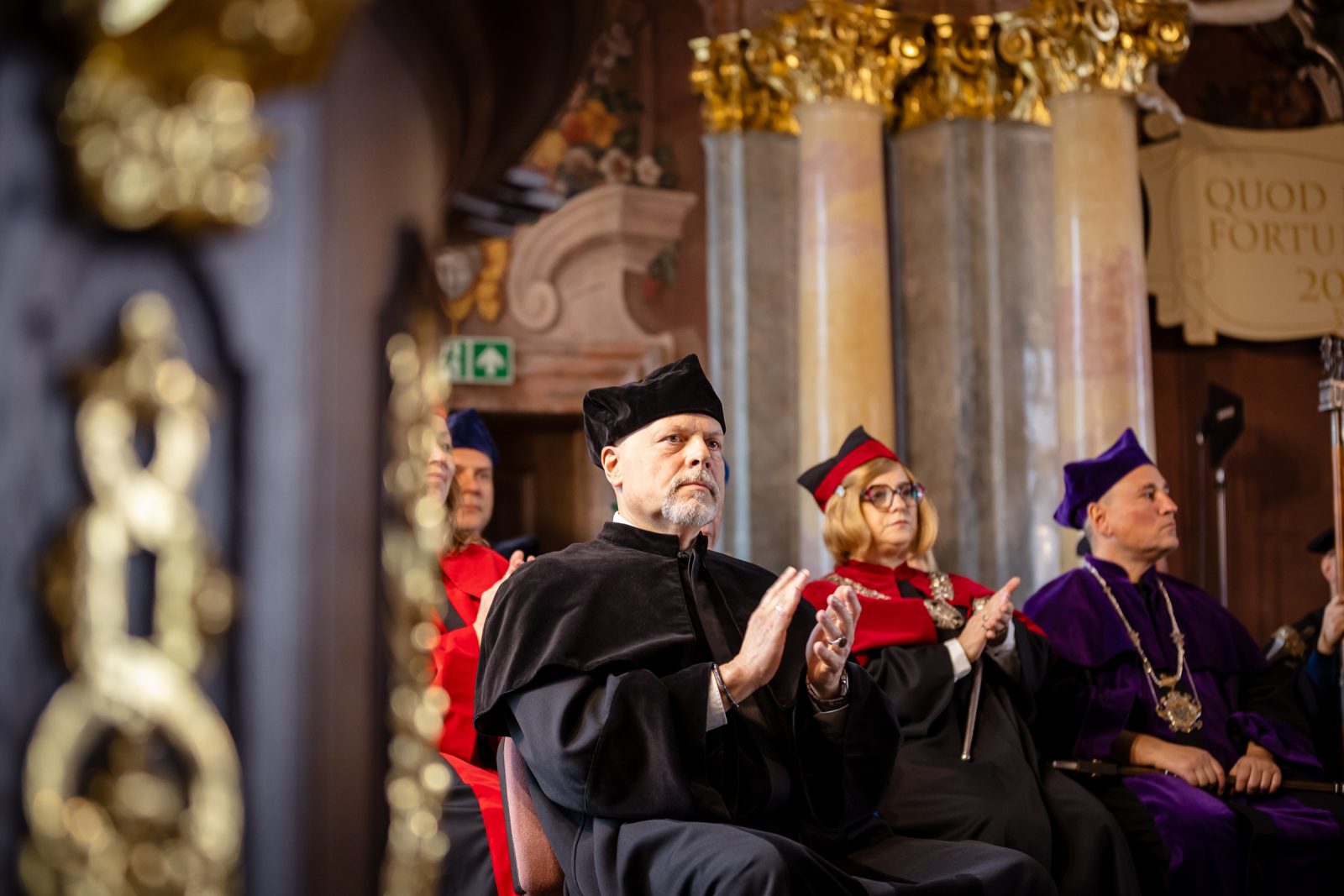
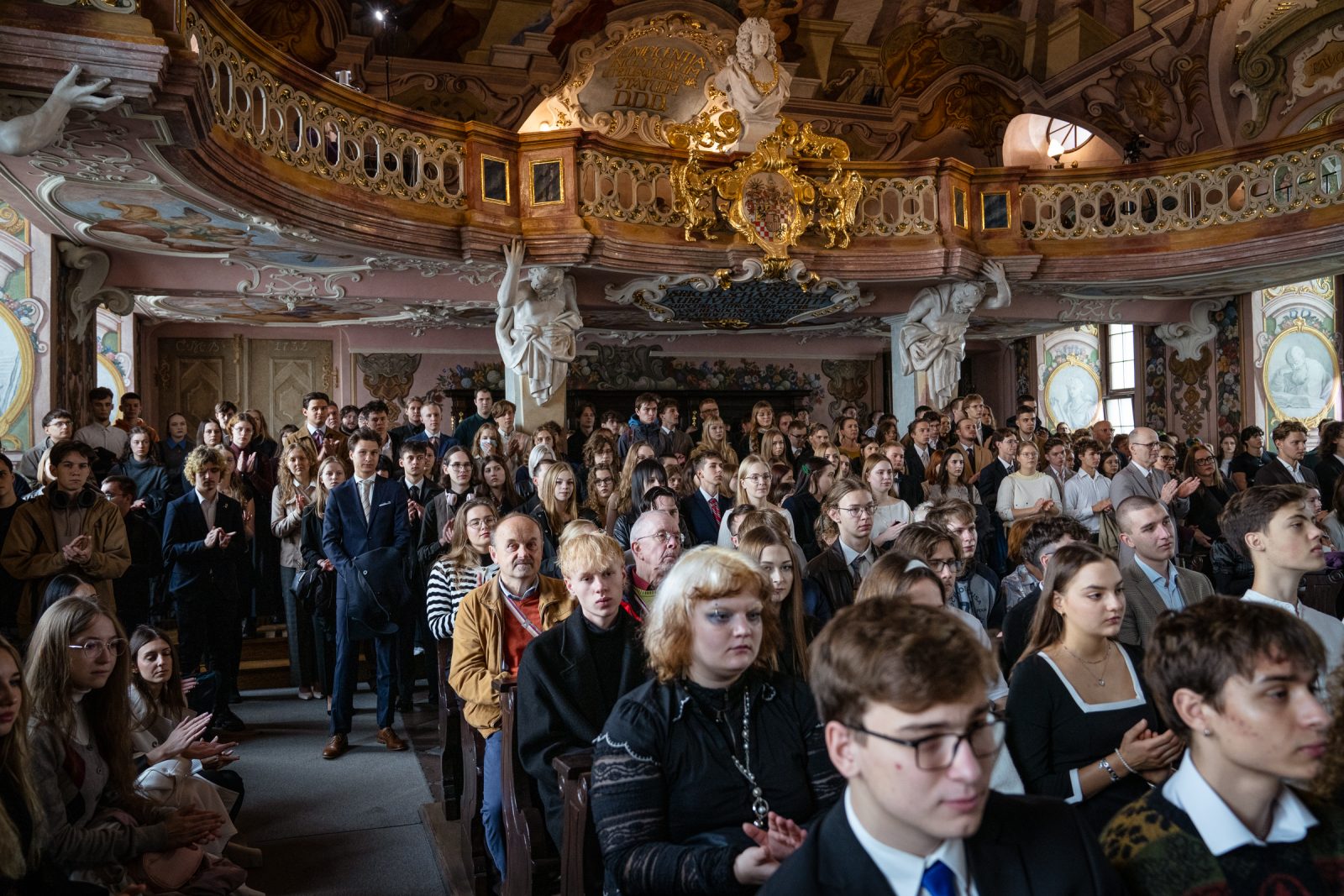
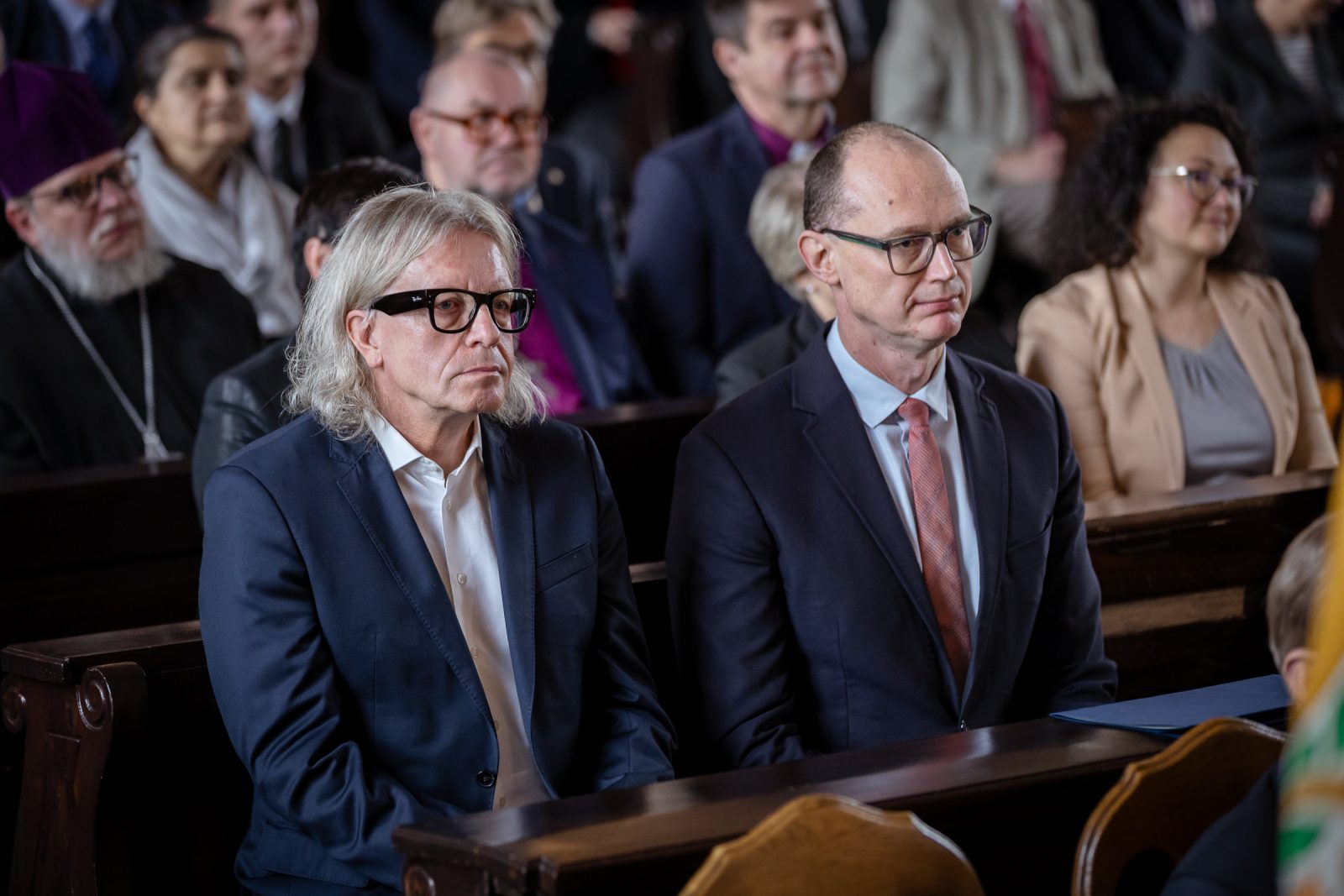
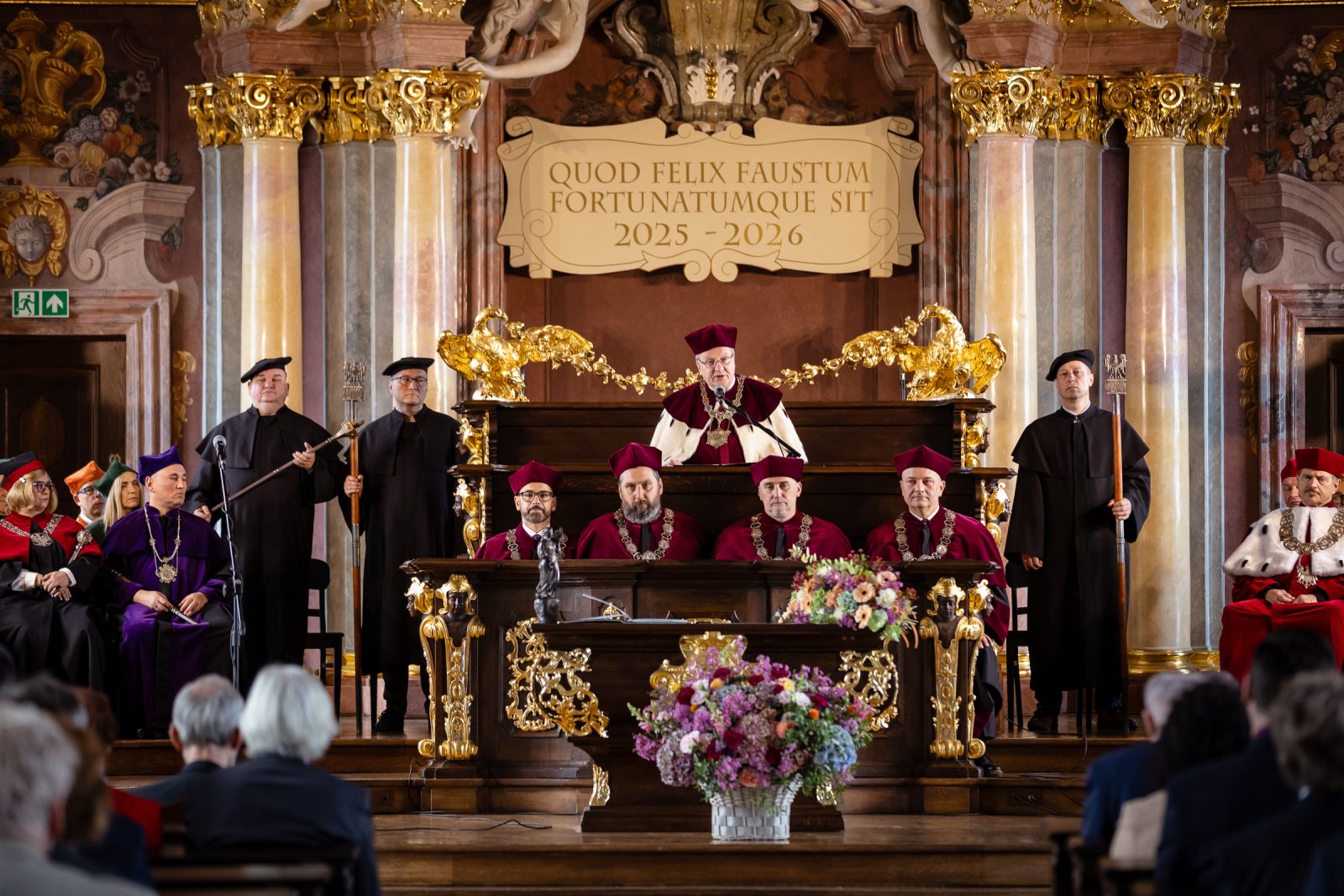
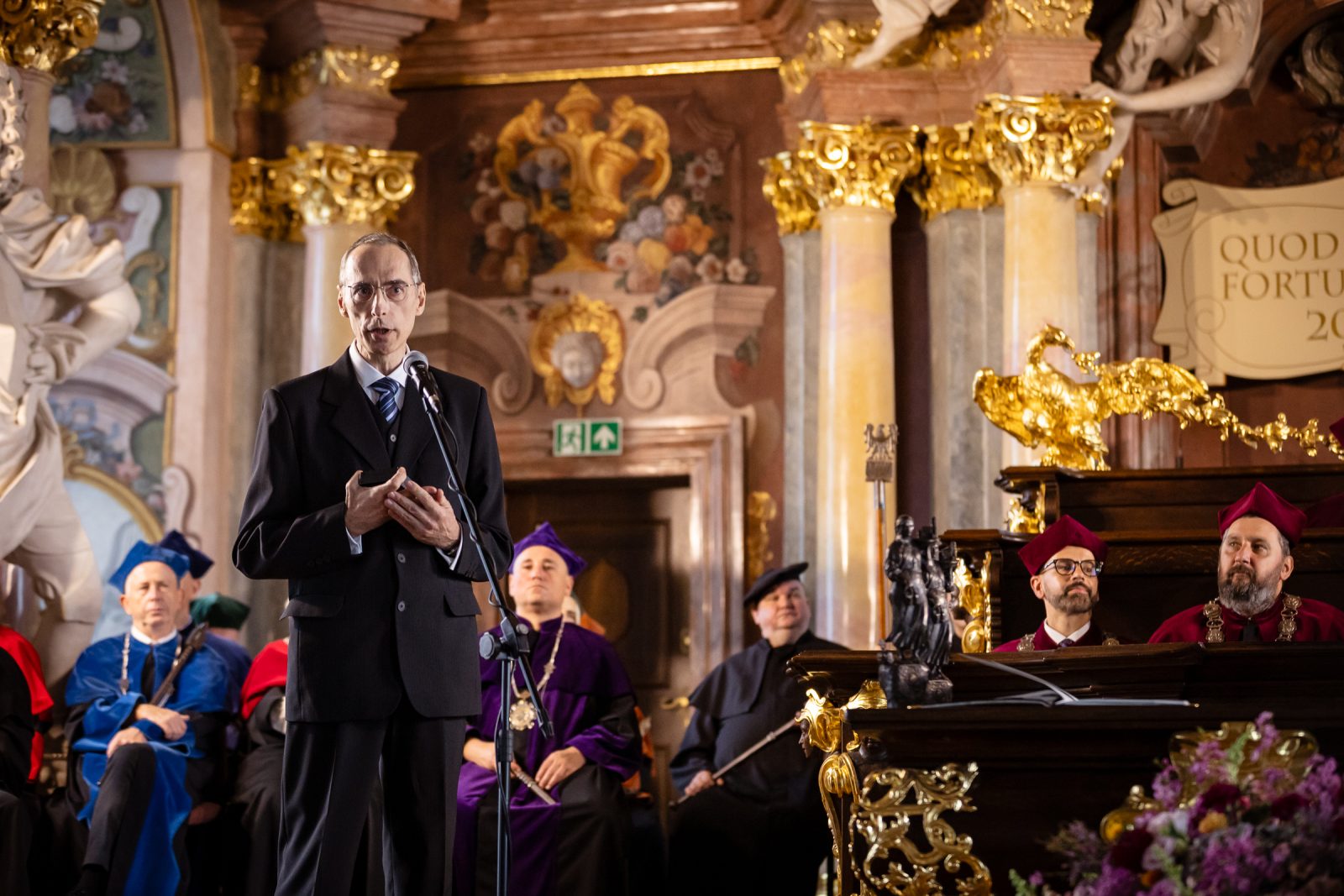
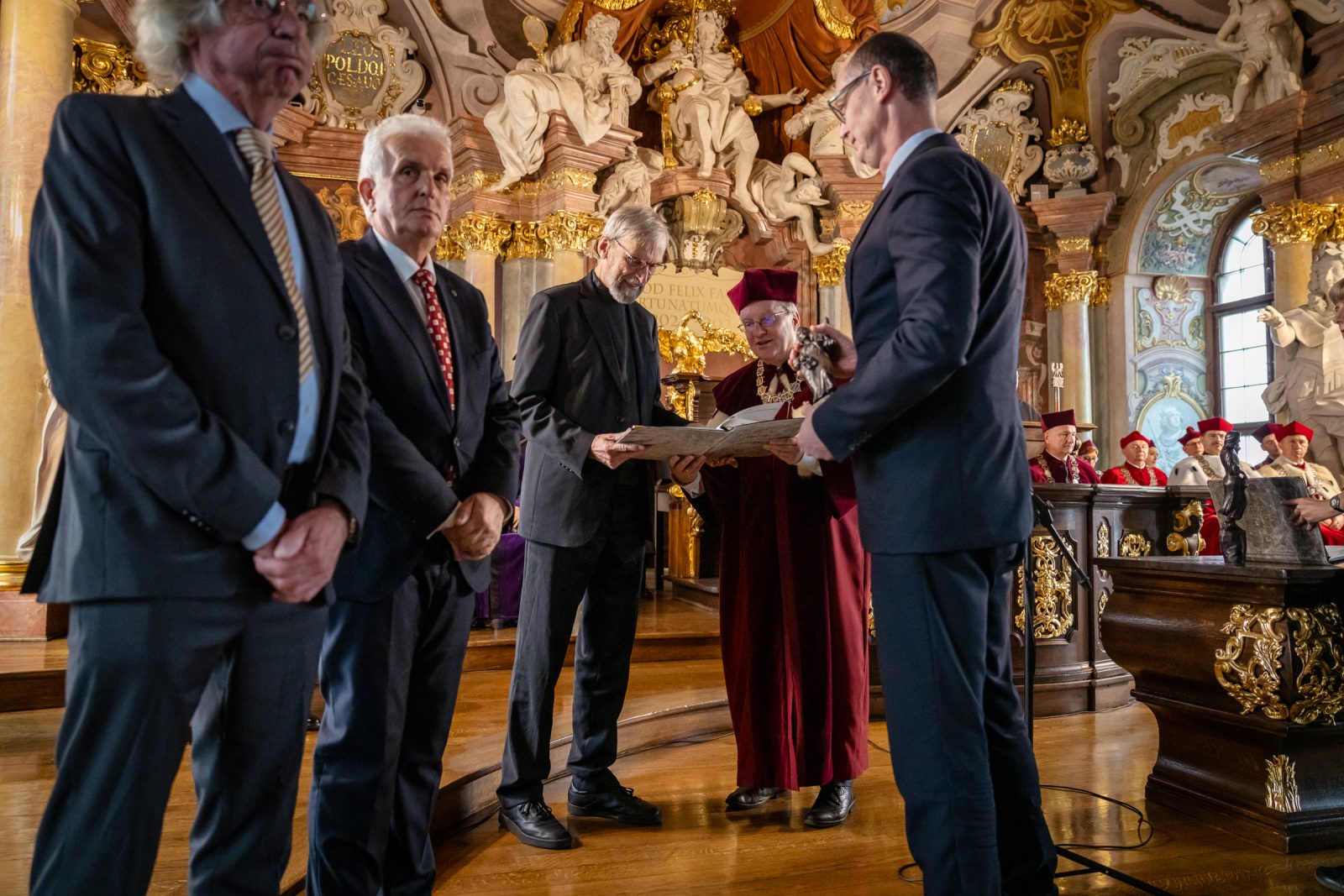
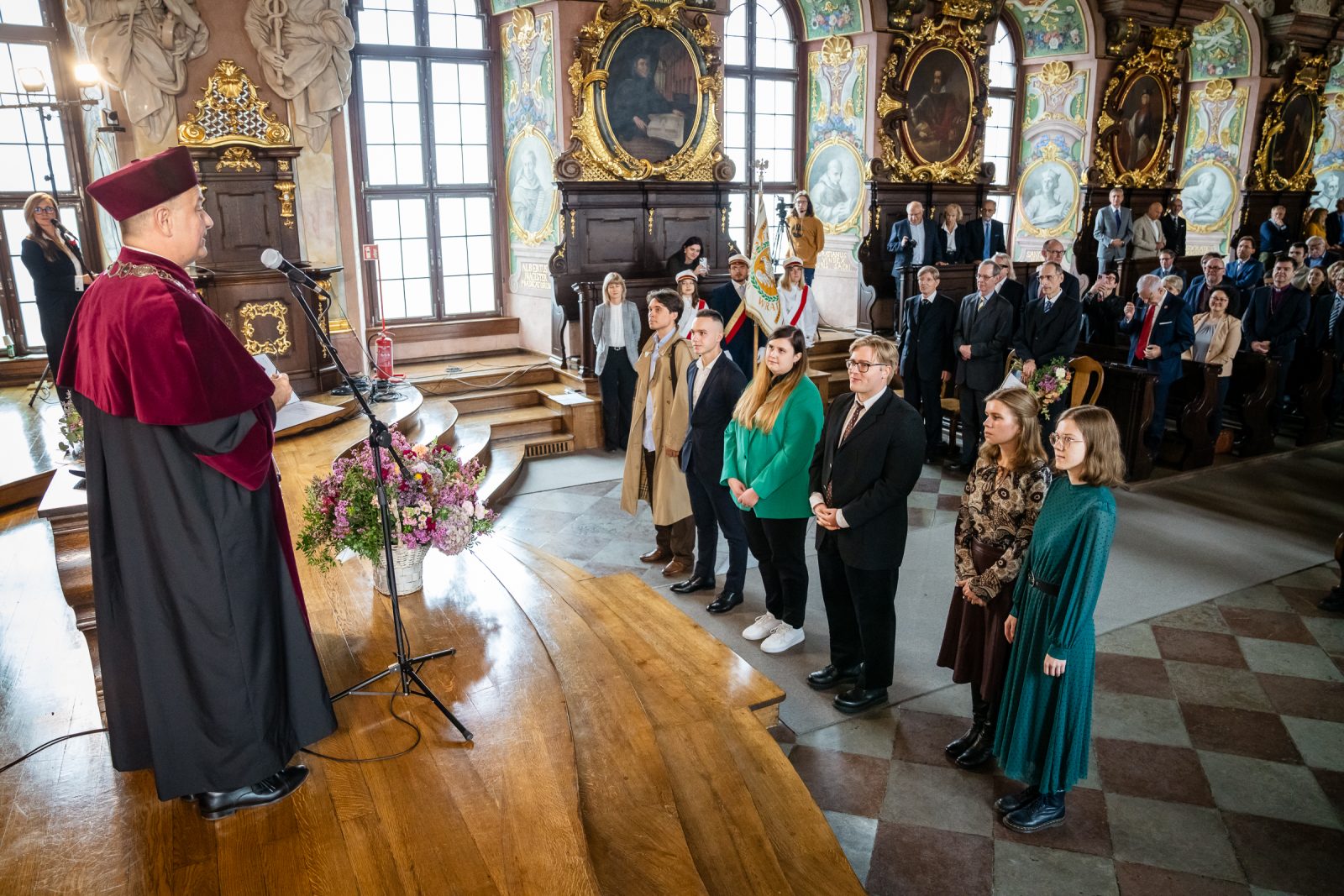
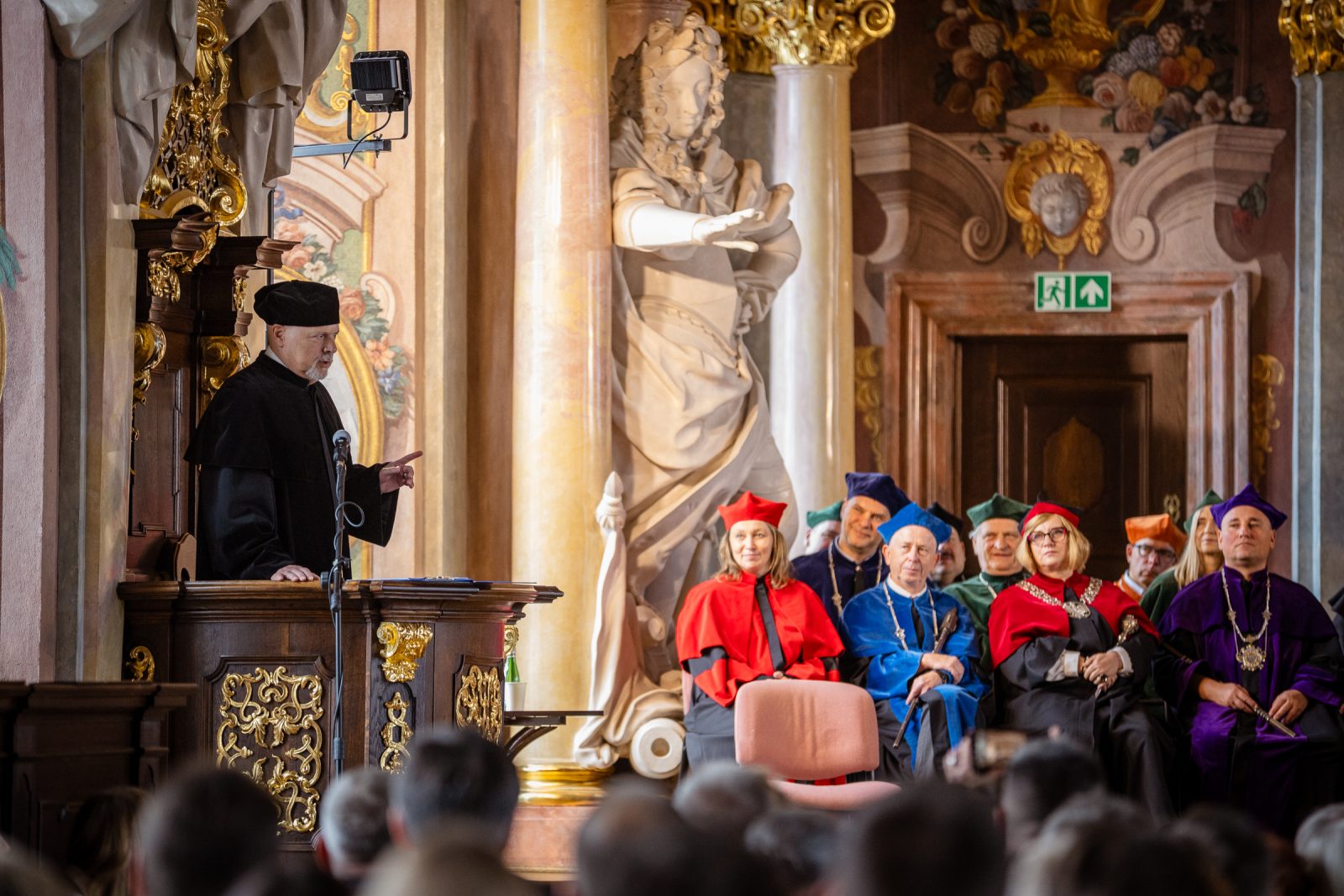
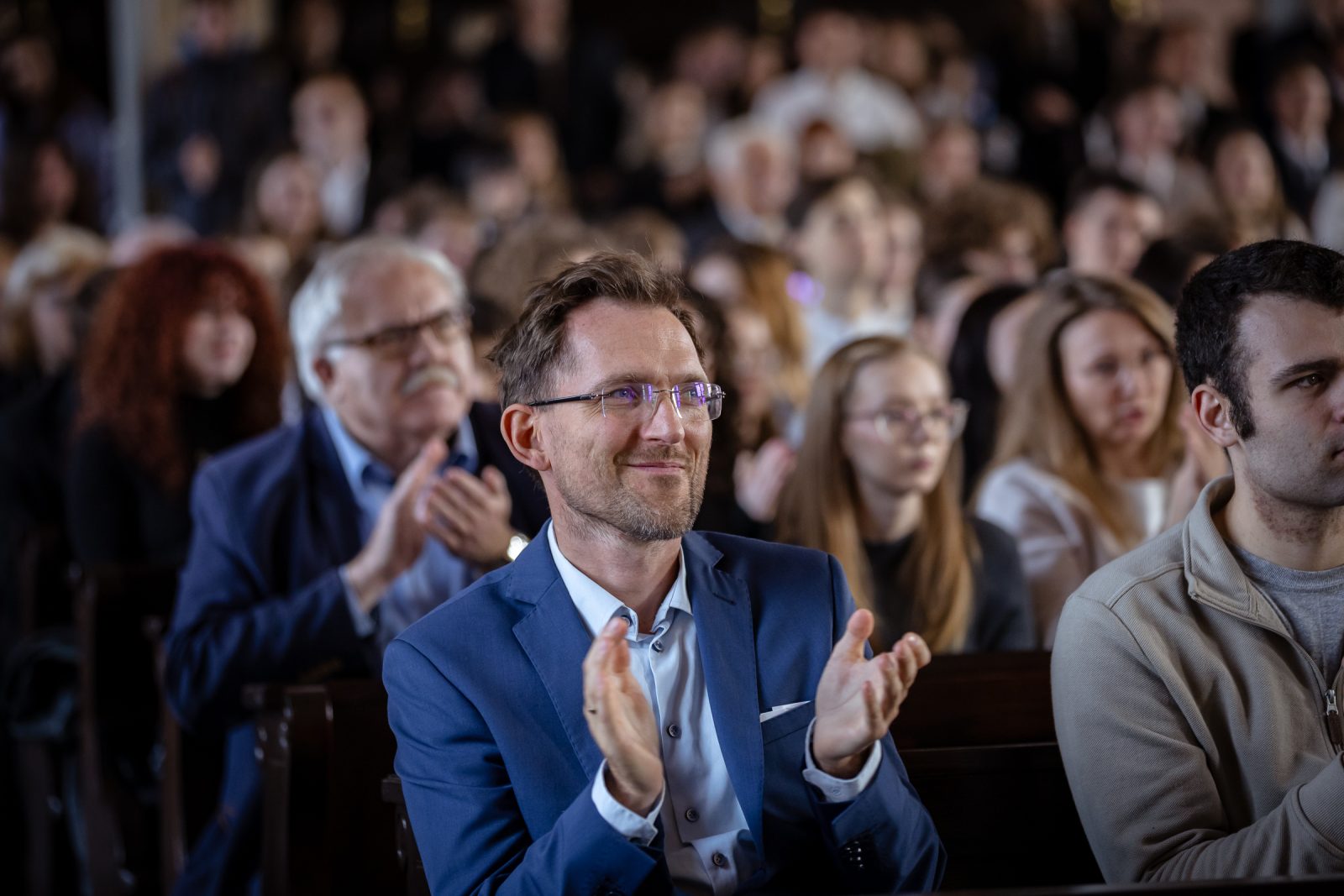
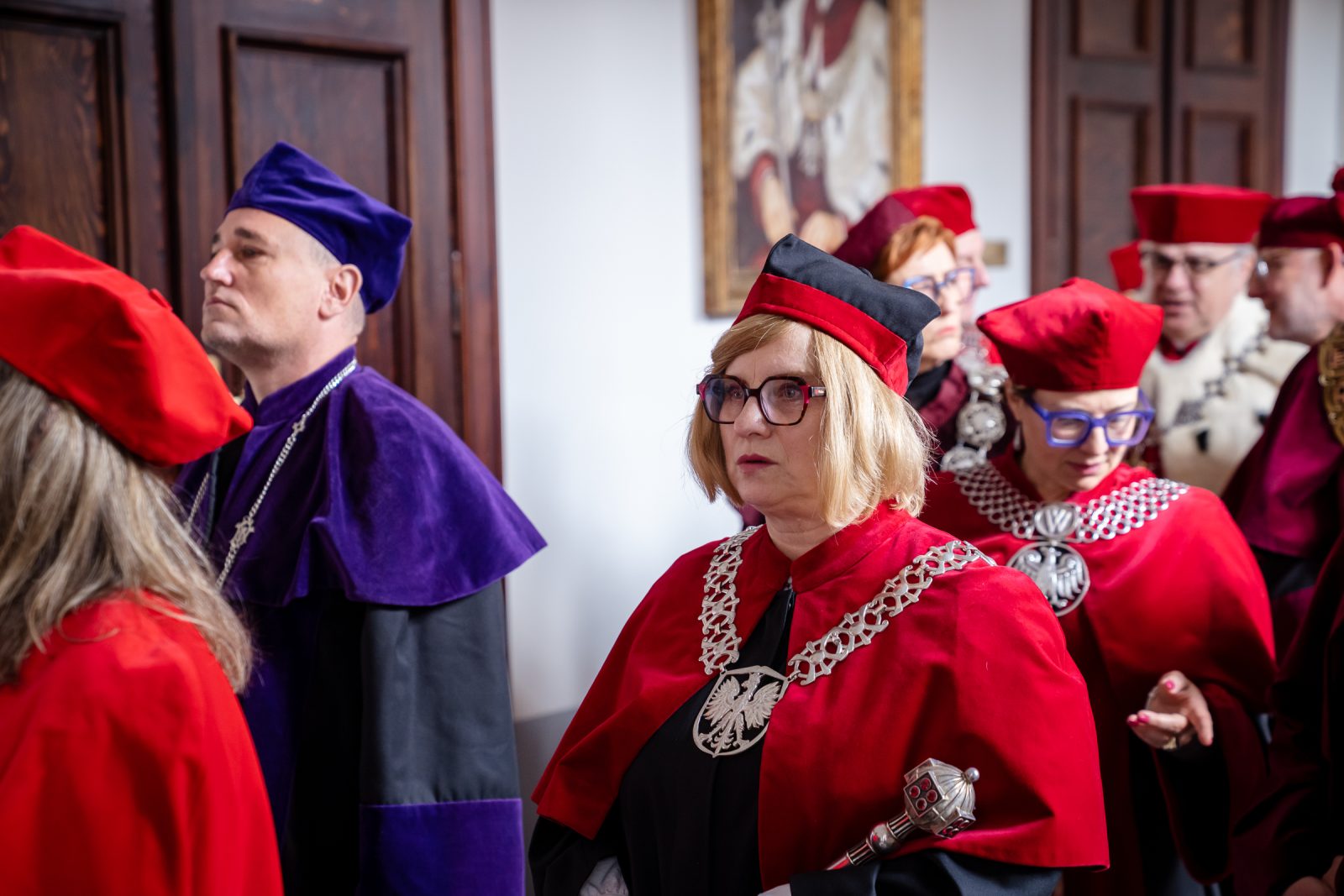
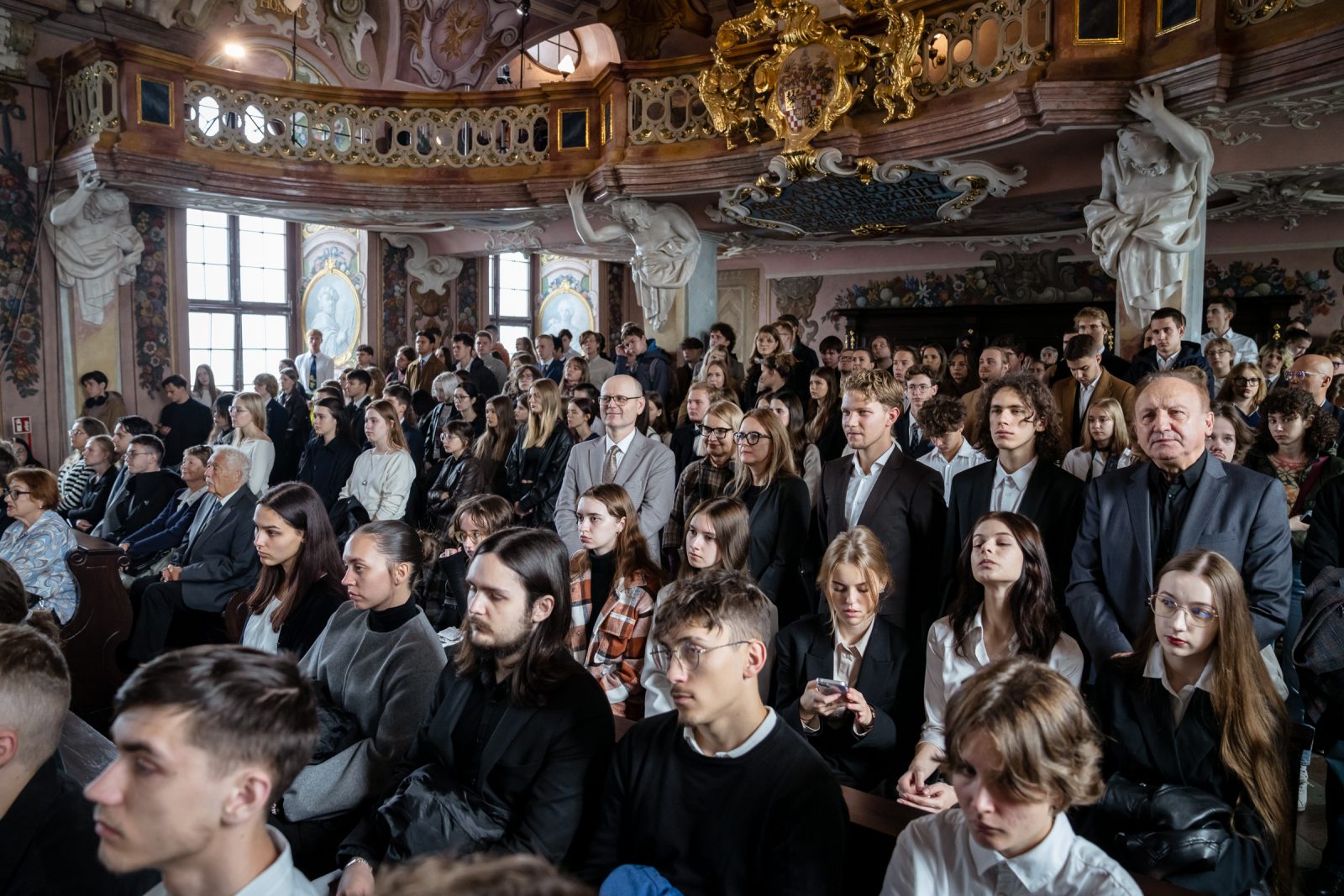
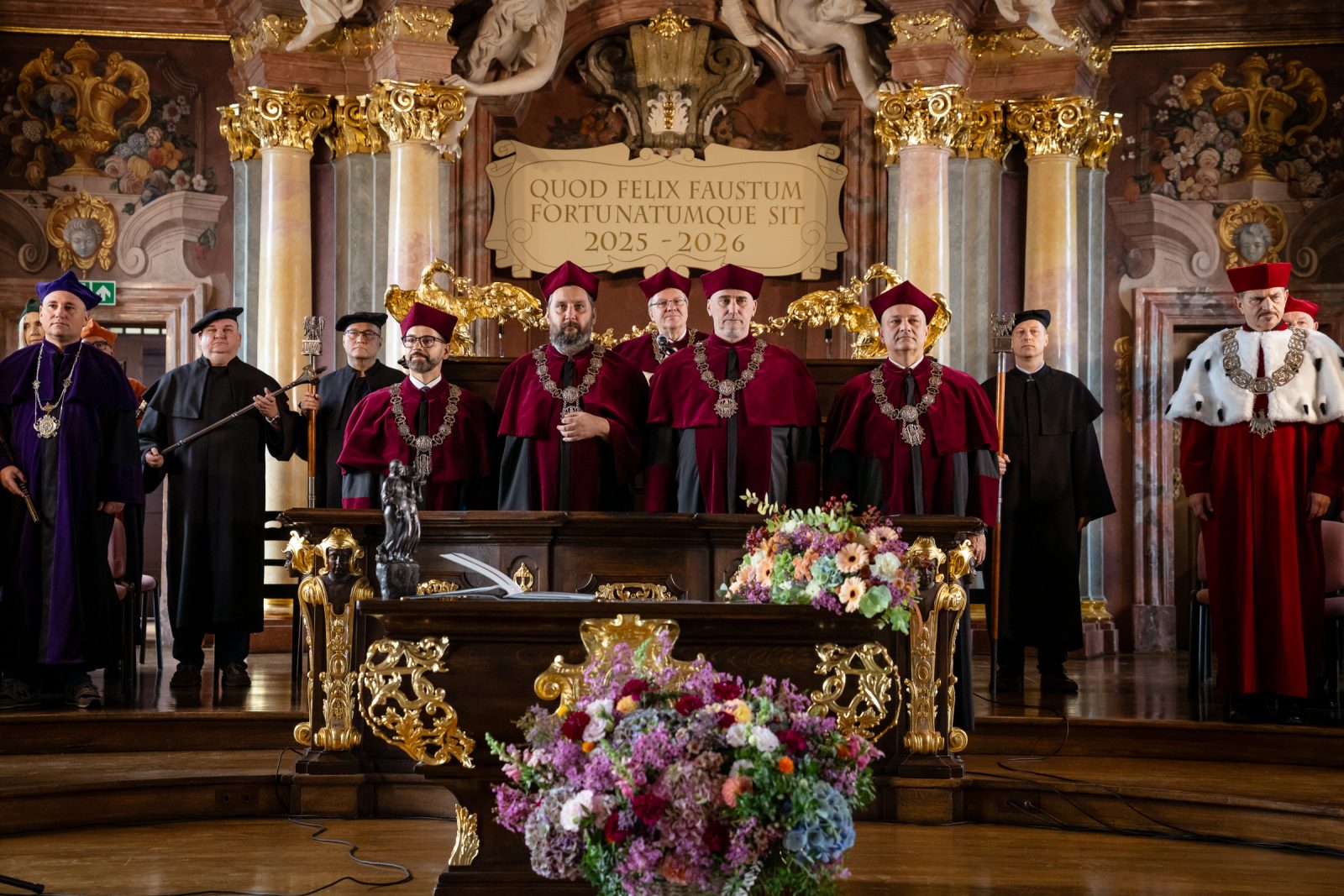
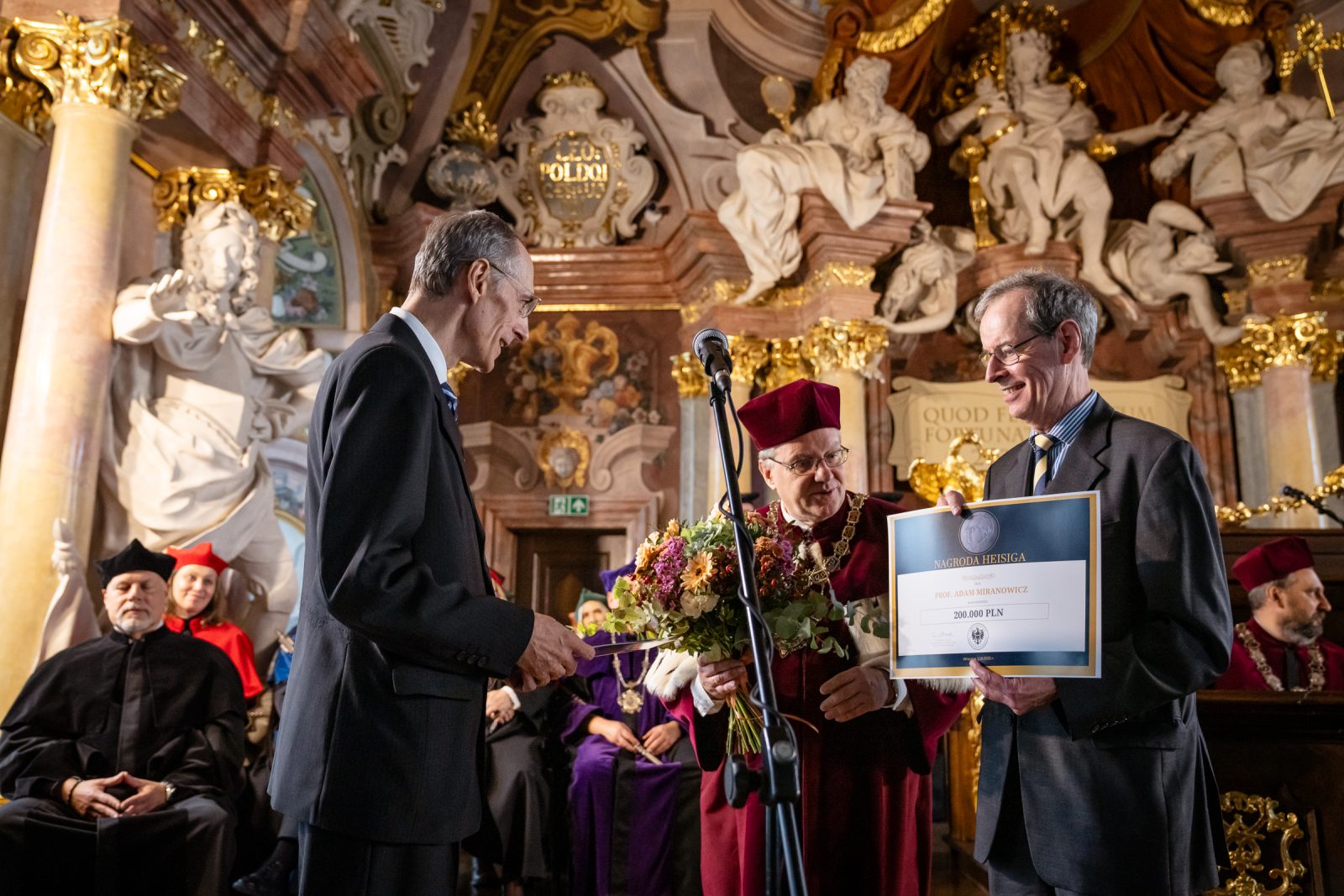
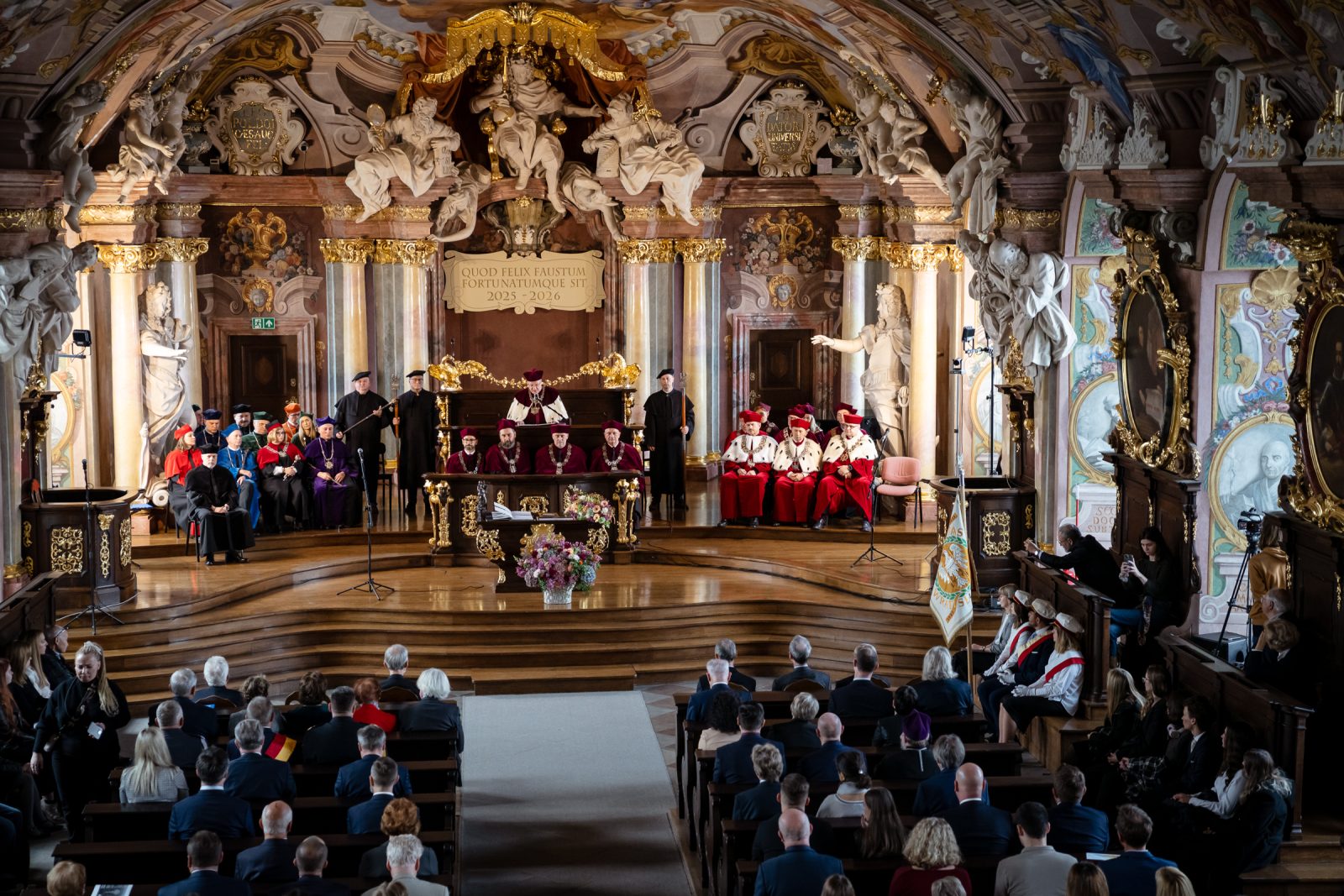
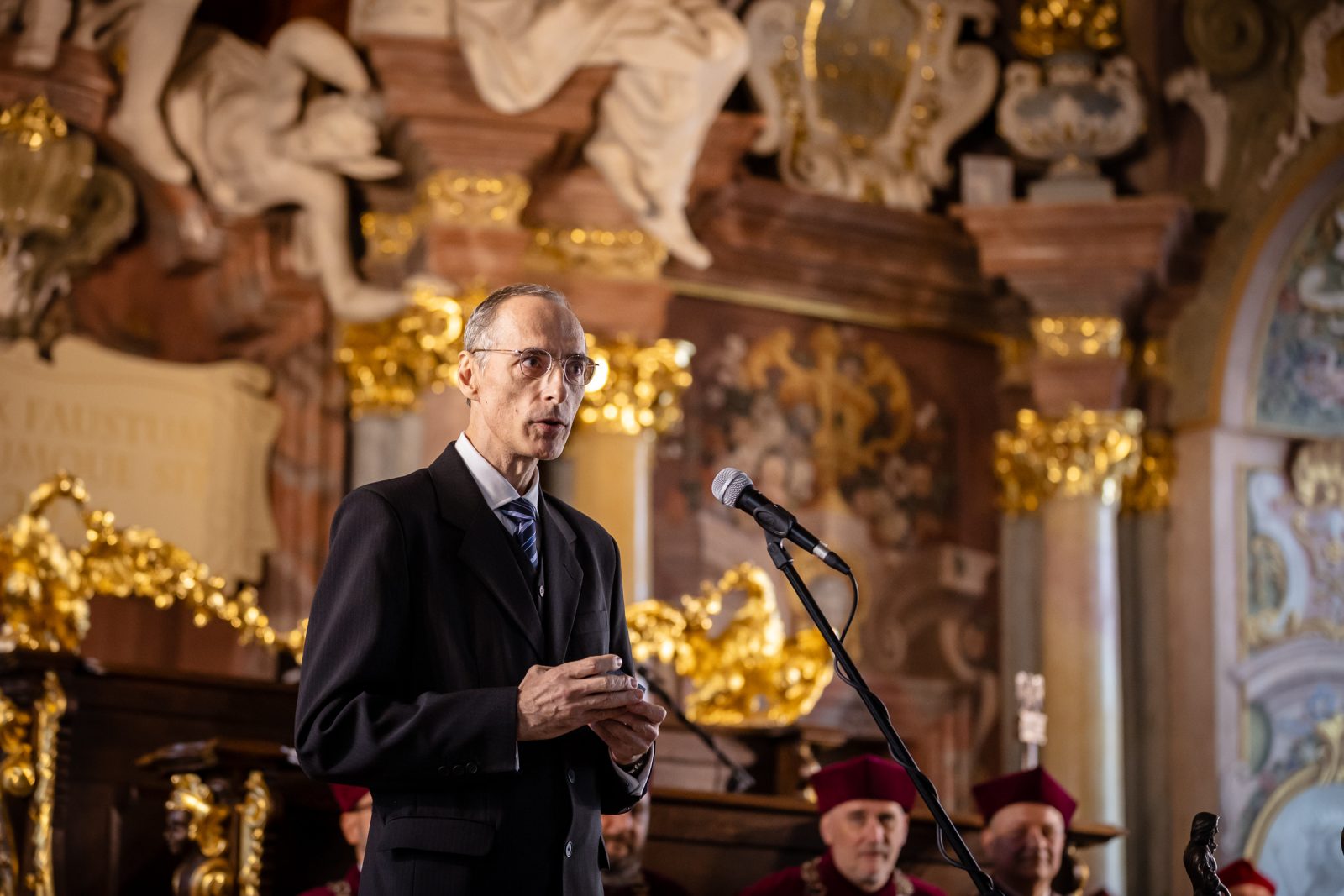

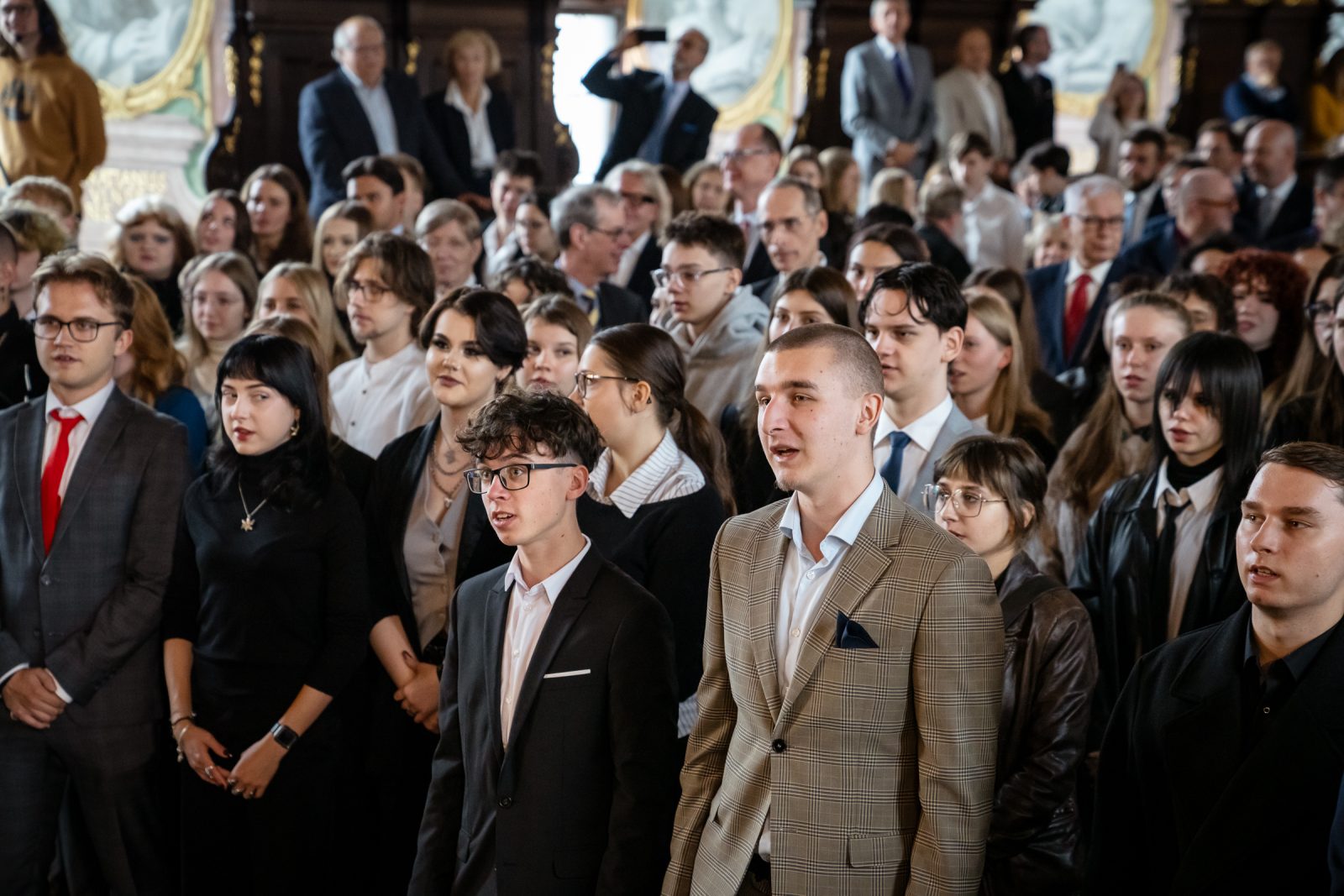
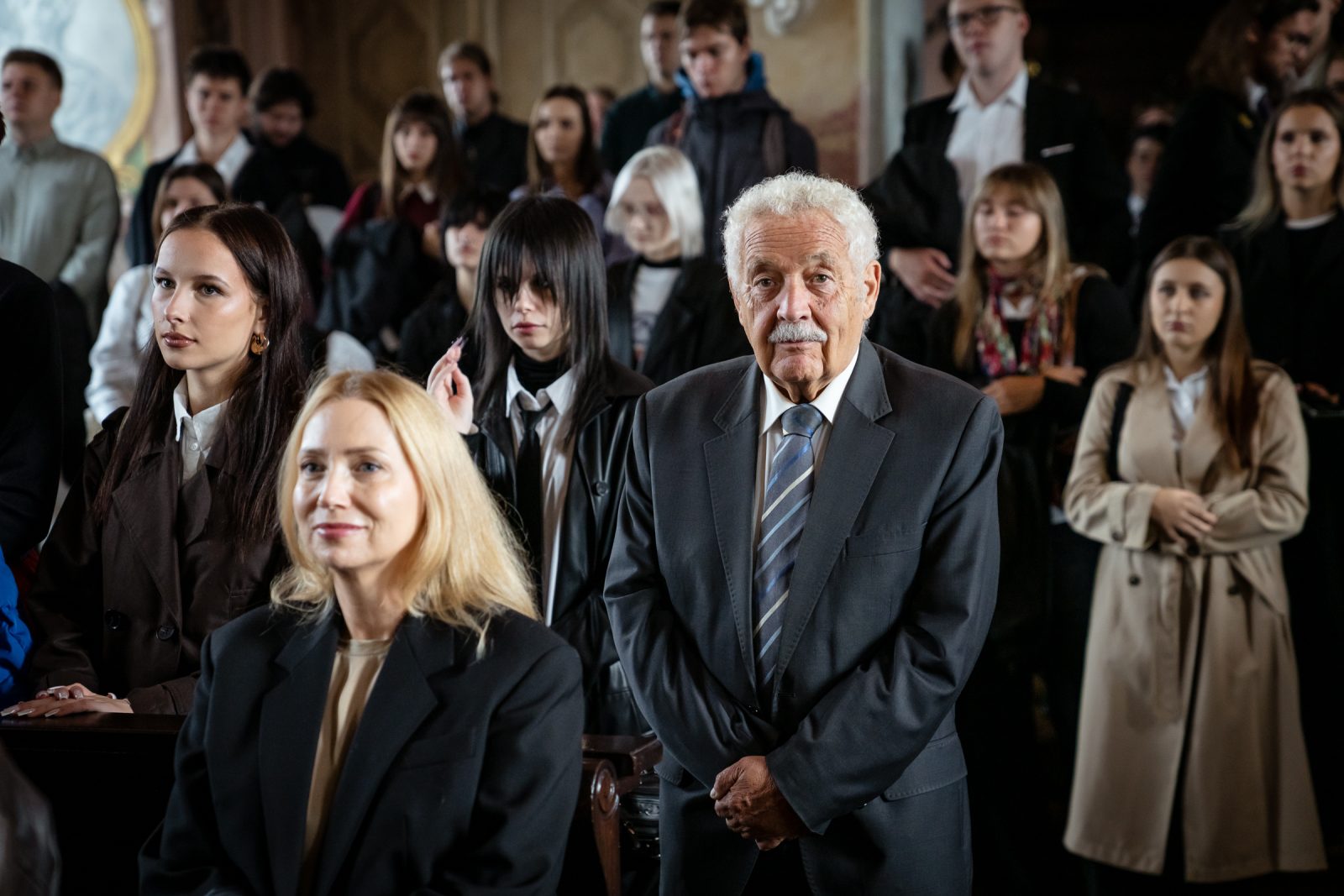
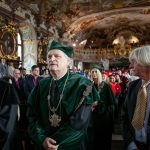
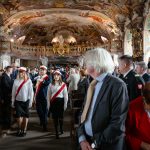
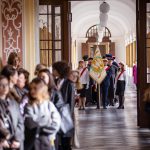
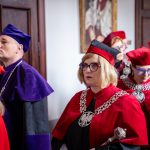
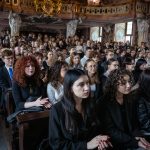
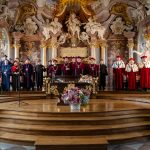
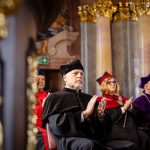
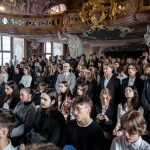
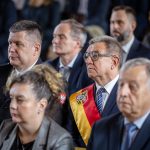
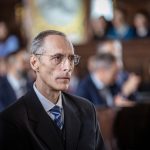
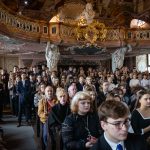
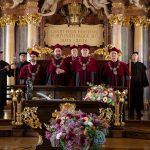
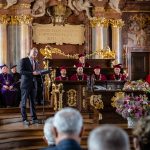
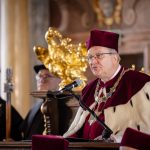
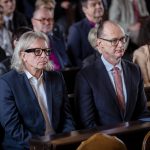
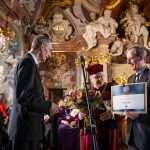
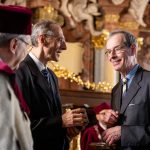
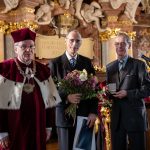
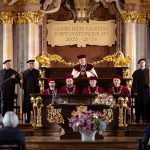
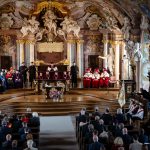
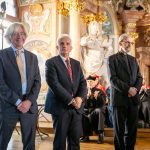
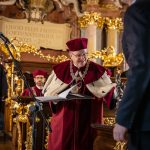
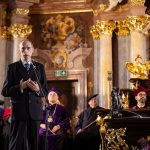
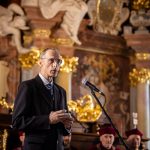
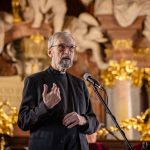
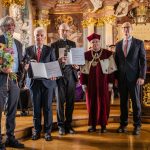
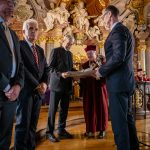
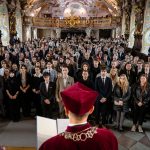
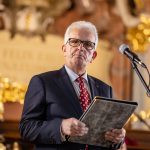
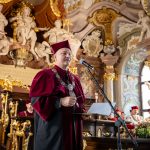
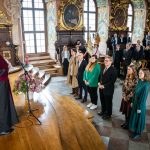
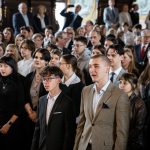
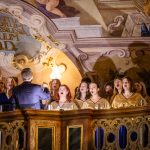
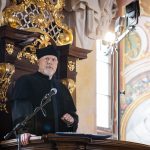
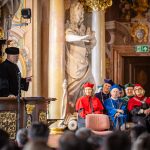
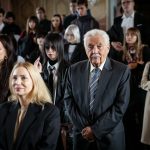
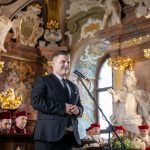
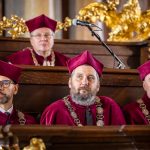
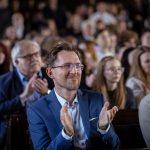
Date of publication: 1.10.2025
Added by: M.J.



